Rock Progressivo Italiano Albums Covers & Photos I
Rock Progressivo Italiano & Italians Prog Masters playlist mixcloud
click up next & listen only first 20 playlists,if there are,from blogger page,for more playlists,click the link above and go in the mixcloud page
Rock Progressivo Italiano Albums Covers I
click the title of the album & you have the album with full informations & mp3`s
One of the most prolific, original, and in my opinion, beautiful scenes regarding progressive rock has to be the Italian one. A movement that saw its dawn in the late sixties, with a bunch of singers/songwriters who wanted to share their talent and make an artistic movement parallel to the political problems they had at that time.
With the arrival of a new decade (70s) this movement often known as RPI reached its climax. Hundreds of bands were created, all of them with trained and talented musicians, whose love for arts influenced them in their creative process. It is common to see beautiful cover arts in the Italian albums - painting has always inspired them (some musicians were/are painters). And in the music we can appreciate a special theatrical flavor. Sadly, a lot of those bands only managed to release one album and then disbanded (Cervello, for example).
This Italian prog realm is really vast: one can appreciate classical music roots (New Trolls); folk oriented music (Delirium); jazzy and complex compositions (Area); avant-garde (Stormy Six); and of course, what predominates, symphonic progressive rock (PFM, Quella Vecchia Locanda, Biglieto per L’Inferno). For one who knows that scene, it is easy to recognize a band from Italy, evidently that beautiful language helps a lot, but also the pure instrumental passages have a common sound - they have created an RPI sound.
Fortunately, nowadays Rock Progressivo Italiano is still alive due to the consistency of some old acts (Le Orme, PFM), but mainly because of the creation of newer, original and talented bands. The names of Il Bacio della Medusa, Il Tempio delle Clessidre or La Maschera di Cera are in everyone’s mouth. They have managed to keep this genre alive, reaching a considerable amount of followers from all over the world. So one thing is sure: you will be hearing about Italian progressive rock for a long, long time to come.
Have a nice trip! ... By Guillermo Urdapilleta ...
With the arrival of a new decade (70s) this movement often known as RPI reached its climax. Hundreds of bands were created, all of them with trained and talented musicians, whose love for arts influenced them in their creative process. It is common to see beautiful cover arts in the Italian albums - painting has always inspired them (some musicians were/are painters). And in the music we can appreciate a special theatrical flavor. Sadly, a lot of those bands only managed to release one album and then disbanded (Cervello, for example).
This Italian prog realm is really vast: one can appreciate classical music roots (New Trolls); folk oriented music (Delirium); jazzy and complex compositions (Area); avant-garde (Stormy Six); and of course, what predominates, symphonic progressive rock (PFM, Quella Vecchia Locanda, Biglieto per L’Inferno). For one who knows that scene, it is easy to recognize a band from Italy, evidently that beautiful language helps a lot, but also the pure instrumental passages have a common sound - they have created an RPI sound.
Fortunately, nowadays Rock Progressivo Italiano is still alive due to the consistency of some old acts (Le Orme, PFM), but mainly because of the creation of newer, original and talented bands. The names of Il Bacio della Medusa, Il Tempio delle Clessidre or La Maschera di Cera are in everyone’s mouth. They have managed to keep this genre alive, reaching a considerable amount of followers from all over the world. So one thing is sure: you will be hearing about Italian progressive rock for a long, long time to come.
Have a nice trip! ... By Guillermo Urdapilleta ...
Italy Had the Best 70’s Prog Rock Scene and Nobody Knew? A Beginner’s Guide to Italian Progressive Rock 1970-1977
For prog rock people, it was always about the UK bands. I mean, the whole prog scene developed in England starting in 1969 or so, right? Well yes, that historically is the commonly held view for most fans in the States and the UK, and much of the continent of Europe. But dipping into the south of Europe, say Italy, you will find that view is not necessarily in favor. For Italy delivered a mother-lode of progressive bands in the early 70’s (1971-1975 in particular) that not only would boggle the mind, it is an equally startling amount of high end prog bands that not only rivals the famed UK scene, but outstrips it in many instances in both talent and sheer numbers. Heresy? Let’s take a look.
For my part, I started off like many of the era did: everyone had Yes and Jethro Tull albums, some of the more adventurous had ELP, King Crimson and Genesis albums too. The really freaky kids might have a Focus album or maybe Gentle Giant Live on top of the big five. But beyond that, prog on the higher level of UK bands and even more obscure, European bands, was hard to come by. It took real digging to find out about Hawkwind, Hatfield and the North, Gong, Magma, Can, Tangerine Dream, the Nice, Caravan, Gryphon, Soft Machine and their ilk in the pre-internet days. But Italian bands? Other than PFM Cook being ubiquitous in every record store’s cutout bins for $2.99, Italian rock was definitely hard to come by. Even Photos of Ghosts by PFM on ELP’s US Manticore label wasn’t exactly easy to find, even back in the late 70’s. Back then I didn’t give it much thought. The perceptions of the Italian fashion scene ebbed and flowed, but the opinion in the States was that their music and film were generally cheesy and inferior to UK and US output, not really serious or informed enough to be in consideration in any discussion. Of course we now know that those perceptions were skewed by several broken lenses. Before we go further, we will need a short brain rewiring…
Deprogramming
Now close your eyes, we need to get some preconceptions out before properly proceeding deeper into the tale of Italian rock. Unfair perceptions ran rampant in the UK and US 60’s era that Italian stuff wasn’t quite first world, that they imitated everything from the UK and American culture. (ironic considering Rome was 2,500 years old when America was founded). So let’s first eject that idea from any preconceptions many (even me back in the day) might be lugging around. Italian prog rock is a journey into an area closer to stepping through the back of the wardrobe and entering Narnia-except in this case, most of us didn’t even know this wardrobe was even here. However, there might be some warning signs that a jump into the deep waters of this scene might not be for all.
For many, the vocals can be a sticking point. First, they are in Italian, which some people never get past. (for many the Italian vocals are an integral element, an extra instrument that functions more than a traditional rock singer-Demetrio Stratos is the best example, but we are getting far ahead of ourselves) But Italian vocalists can tend towards the the gruff and raw, combined with an emotional delivery that just cannot be ignored. One thing many have in common though, and often heard in many corners is that so many people who are fans of the scene say ‘it doesn’t matter if I don’t speak Italian, I love the vocals’ (I also agree with this statement wholeheartedly, it honestly doesn’t matter). However, if you don’t like the vocal angst of Peter Hammill, you should probably look away. If you don’t like Jethro Tull or ELP, look away. If you like pastoral early 1970-71 era Genesis, King Crimson, Gentle Giant? Come right in. If you like raw kickass rawk I will hold the door for you. If you are one of those 70’s proto math-prog guys who count out 13/8 but still complain the ‘contrapuntal accents didn’t fare well in mixylodian mode’, you still might want to look in. You like the reckless abandon of that freaky Aphrodite’s Child double lp? You’re already initiated. Italian bands don’t really pull any punches, rarely have gentle understated vocals so common in 2nd division Brit prog bands-it’s always right there on the table for good or ill, but cannot be ignored.
How different is this from the nearly non existent American prog scene (more consumers than creators) and the big daddy UK prog scene? Picture 150 Jethro Tull cover bands suddenly breaking out into original compositions and playing live in a country only half the size of Texas. Picture another 40 or so ELP cover bands going original at the same time. Add in a hundred Genesis cover bands and a dozen King Crimsons doing the same and stir the pot and get all of them signed to either a major label or a larger indie label in a five year span and you are beginning to see how unprecedented this all was. Let that sink in for a minute. 300 bands criss-crossing the country incubating a new hermetic version of what they’d absorbed. It’s funny that Italy of all places beamed onto the UK bands that toured the country in 1971-1972 so fully: Genesis and Van der Graaf Generator were huge in Italy before they were in the UK (VDGG said that they couldn’t walk the streets of Italy without being swarmed by huge crowds of fans). Gentle Giant and Amon Duul 2 also had big tours in the formative years. Now you’re beginning to get just how unprecedented this movement was. Sure the Brits and the Yanks invented the garage rock era, the British invasion, keyboard heavy overamplified rock, formative progressive rock-but these guys took the ball and locked themselves up in the laboratory and exploded with a tsunami of Mediterranean vaguely UK prog jazz folk wtf music that is the most spirited projection of human soul into music I’ve encountered in my long years of listening to rock music. If you are still on board, let’s proceed…
Roots
The roots of the scene are heavily embedded in the somewhat known Italian ‘beat’ scene. Like many countries in Europe, rock n roll blew up big in Italy in the early to mid 60’s. Literally hundreds of bands popped up mimicking the styles of American and British bands of the same era- The Sonics, The Troggs, Question Mark and the Mysterians, Hendrix, the Kinks…Italy went far deeper into the garage rock and later psych rock hole than most countries did (Brazil is another location that had a similar explosion). The youth scene had poked its head into the mainstream, and a large cultural shift was underway propelled by cheap electric guitars and fuzzy Farfisas. TV, regional song festivals, and youth clubs spread the word and Italy had a vibrant, albeit derivative, burgeoning 60’s rock scene. I Corvi, I Ribelli, I Giganti, I Dik Dik, Equipe 84, I Nomadi were some of the better known of the hundreds of bands formed….they all followed a similar high spirited sonic pop path. This set the stage for the next steps.
The Birth of RPI
Many refer to Italian progressive rock as RPI, or Rock Progressivo Italiano. This term is more recent and collects all of the various Italian bands into its own niche of a sub-genre of progressive rock. Although it is generally used to describe 1970’s era Italian prog, it also is applied to more recent bands that keep this sound alive in Italy.
Where Do I Start? part 1: Proto Prog Explodes
The first bands to dip their toes into prog rock still were firmly recognizable rock bands with heavy psych roots. Synths hadn’t yet shown up on the scene, so the blueprint of the Italian sound was initially developed with many bands adopting flute as one of the main instruments. Styles varied from UK influenced organ bands like Atomic Rooster, Deep Purple and Uriah Heep to heavy. psych with an edge. Flea on the Honey kept up an honest English flower power vibe as did Blocco Mentale. Panna Fredda (Uno), Delirium (Dolce Acqua), Osanna (L’Uomo) are all variants of this early sound-some loose folk, some heavy acid guitar Tull influenced arrangements, some acoustic guitars predominant. Flute starting to become integral to the sound. Delirium was a good example of a band that broke out from the underground through the San Remo Song Festival with an unexpected Godspell tinged monster hit,
Though there are many essential bands in the ‘proto prog’ era of 1970-1971, those just getting started should actually start with the Big Three….
The Big Three-Everyone Should Start Here
For many just getting started in Italian prog, the Big Three are the only bands anyone knows about: PFM (Premiata Forneria Marconi), Banco Del Mutuo Soccorso and Le Orme. It is no coincidence these three bands are some of the only ones to put out more than a handful of albums and were still extant into the millenium. But these three bands are not only the cream of the Italian prog scene, they are three of the better bands in all of prog rock in the 1970’s.
PFM are the widest known in the States, with multiple releases in the UK and America. Banco was also on the Manticore label like PFM and saw two releases in America. Le Orme didn’t get much exposure outside of Italy, but due to longevity they are always included in the Big 3. PFM are the easiest to find, and will bring the richest rewards, exemplifying perfectly the Italian sound-flute, violin, Moog synth (they owned the very first Moog sold in Italy) slashing electric guitars, gentle classical guitars, furious drumming-this band was the quickest to assimilate their influences and forge their own sound over a five year period from 1971-1976. Everyone should have their early releases, especially the seminal debut, Storia di Un Minuto, an album for fans of early Trespass-Foxtrot Genesis. I’d had Cook as one of my first 40 albums back in the day, but seeing them live last year in Italy was revelatory-they are able to play still to this day with a precision that no survivors of the UK prog scene can come close to. (Yes being unable to play their own material anymore comes to mind.)
Everyone should get these on top of the two pictured earlier-Live ‘Cook’ and Photos of Ghosts for a total of six essential albums. Celebration (e Festa in Italian original) is perhaps their best known song, their ‘Freebird’ or ‘Stairway to Heaven’ if you will. Most in Italy are familiar with this tune. It is a whirling dervish tarantella infused dance of pure joy-E Festa!
Banco del Mutuo Soccorso is the band that Italians lean towards when asked about the essential premier Italian prog bands. Driven by dual keyboardist brothers Vittorio and Gianni Nocenzi, their sound is closer to an Italian ELP, with the powerful vocalist Francesco di Giacomo (pictured below). Their first US and UK release, the 4th lp entitled simply ‘Banco’ is the best place to start for newcomers, but their first four are absolutely essential listening. Their debut album is thought of by many Italians as the best release in all of Italian prog. I’d be hard pressed to disagree.
The last of the big three is Le Orme, who were one of the first bands to successfully transition from psych to prog when they ditched their 60’s era psychedelic trappings of Ad Gloriam to adopt a sound heavily influenced by the Nice and ELP in 1971 with one of the first examples of genuine Italian prog, Collage. The follow up in 1972 L’Uomo di Pezza brought them deeper in their own sound, but it was 1973’s Felona e Serona that gave them international exposure. Charisma Records in the UK issued this album with English lyrics written by Peter Hammill-this is one of the top albums of Italian prog, and the Italian version is even more powerful. (I did drive around in my car to an Italian cassette of Collage for a while in the mid 80’s.)
All four of these are highly recommended, especially the fourth one Contrappunti from 1974, one of my personal favorites-newcomers might want to try this one to start. Here is a taste:
Where Do I Go Next?
Once you get past the Big 3 and still want more, there are some seminal bands that rival anything the UK had to offer:
Area
First stop should definitely be this band. Active from 1972-1979, Area were a unique band in the Italian prog scene-a perfect fusion of jazz, anarchy, prog and middle eastern scales blend to create something distinctly unique in the scene. For many they stand head and shoulders ahead of the pack. Led by the pyrotechnic vocalist Demetrio Stratos (who passed away in 1979 at his peak) they have always been one of my favorite Italian bands over the last thirty years. Insanely influential and highly recommended. These below are the ones you should get immediately. Start with the live album Areazione.
Museo Rosenbach
Usually sits atop everyone’s list of ‘best ever Italian prog’ albums, this is a very rare one and done band that delivered a masterpiece of Italian prog in 1973, and then disappeared. Heavier than many of their contemporaries, not for fans of Barclay James Harvest or similar lightweight UK prog bands. Highly recommended but getting really hard to find-vinyl copies fetch over $1,000 and later reissues now can go for nearly $200. Hard to compare these guys to anybody? Jethro Tull overachieving in UK progressive riffland comes close. A must for RPI fans.
New Trolls
This is the band people usually quickly discover after the Big 3. They are another band that transitioned from the beat era (originally the Trolls-they opened for the Beatles on their final tour) The New Trolls Concerto Grosso from 1971 is one of the biggest selling prog albums in Italian rock history, still in print to this day. They were able to mix symphonic themes with dirty electric guitars in a way none of their contemporaries were able to. The band split in half after their masterful Ut album, with keyboardist Vittorio De Scalzi taking the symphonic with him into the N.T. Atomic System, and guitarist Nico di Palo taking the whole rest of the band with him to form a band known as ‘?’ due to the band leaders fighting over who legally owned the name. If you like a bit of raw rock inside your prog-Ut will be your place to start. Everyone however should own Concerto Grosso per i New Trolls-often considered a masterpiece of prog. Think of a schizophrenic symphonic Jethro Tull with Tony Iommi as guitarist. Great band.
Goblin
This is a band that was unknown outside of Italy (or horror film fans) until recently when they did several tours in the US and UK. Kind of unique in sound, Goblin are hard to categorize-sometimes veering close to cheesy-they usually maintain a solid creepy instrument prog vibe that is bolstered by some impressive musicianship. Their heyday was 1975-1977. I’d discovered them in the early 80’s and I’ve seen them live several times since 2012 when they became suddenly in vogue with hipsters. Every time though? They never failed to amaze. They are most famous for their soundtrack to Suspiria. Beginners should seek their greatest hits, which covers a large chunk of their better stuff. If you like that? Here are a few more to dig into. Roller is their studio album while most of their LPs are film soundtracks. Very distinct in style, they are similar to a possessed Mike Oldfield. Look for their precursor band Cherry Five, who sound more like a Yes tinged version of Goblin, with English lyrics.
Osanna
Osanna are another band that few outside of Italy have heard of, despite a couple of album releases in the States. Their third album, Palepoli from 1973, is a masterpiece of not only Italian prog, but the whole progressive rock scene itself. They opened for Genesis in 1971 on their first tour, and it’s hard to imagine what Gabriel thought of these theatrical and make up clad madmen, but shortly after that tour, Peter starting wearing make up and more elaborate stage costumes. Their first album (L’Uomo) might be too raw for symphonic prog fans, as it veers heavily into second album Hawkwind territory, but their third and fourth album (Palepoli and Landscape of Life) are essential to any Italian prog collection. If you like out of control King Crimson and Van der Graaf Generator with a touch of Hawkwind acid madness, this is up your alley.
Balleto di Bronzo
Their second album, Ys, from 1972 is another album that is often seen in the top three best Italian prog album lists. I tend to agree-one of the earliest and best synthesis of symphonic and genuine rock stylings. This is a band I wish I’d encountered a long time ago. A bit of Van der Graaf, but overall this is one of the more frightening takes on symphonic prog in the Italian scene, and I do agree this is one of the best releases in RPI. Not for the faint of heart, but a killer album nonetheless.
Delirium
Like the New Trolls, this is another band that many encounter early on in their expanding RPI search. They are really a tale of two bands-the first with frontman Ivano Fossati on their four singles and debut lp Dolce Acqua, and then post Fossati when they lost a bit of their charisma but became more traditionally prog sounding. Jesahel (video above) is what they are known for, but many in the States have heard a bit of this band. Though I’ve managed to find all of the albums in this whole article on vinyl, their double CD anthology is highly recommended as it contains all three of their albums and all four of their hard to find 45s. I honestly prefer the Fossati era as his vocals and flute playing made the band what they are-an acoustic guitar based Italian powerhouse, but others are drawn to the second and third albums from 1973 and 1974 which are more UK prog influenced-a bit of King Crimson and Van der Graaf derived.
What’s In A Name?
Italian prog bands have some of the longest band names in the history of rock. Why? Nobody is sure. Raccomandata Con Ricevuta Di Ritorno (registered letter with notice of receipt), Locanda Delle Fate, Quella Vecchia Locanda, Reale Accademia di Musica, Rovescio Della Medaglia….At least two of those bands had the good sense to choose to abbreviate their name-RDM for US consumption and RRR because even Italians had problems with that name.
A quick dip into things I found funny as I got deeper into RPI. For those who speak only English, the band names in Italian prog can be bewildering and sound mysterious. But upon translation……
Premiata Forneria Marconi -who knew it meant ‘Award Winning Marconi Bakery’? Not me.
Arti e Mestieri – art and mystery? Nope, it means arts and crafts
Banco Del Mutuo Soccorso- a guy in a record store in Italy corrected the common translation of ‘bank of mutual assistance’ to a simpler one: ‘pawnshop’
Le Orme – always thought this was a medieval term for ‘the worm’. Nope, it means ‘footsteps’
Latte e Miele – had some great cool guesses. It actually means milk and honey
Most of the time, I liked the mystery better I think.
Italian Vinyl
Some have kept repeating through the decades that Italian vinyl pressings are not great quality. While that can be true for some of the tinier labels, most larger Italian labels have immaculate pressings-sonically vibrant in a way that the re=pressings of the post 2000’s era can’t really capture.
There was also an attention to detail in Italian album covers that US and UK releases rarely saw. Gimmick die cut covers were rare in the the UK and US, but shaped covers, elaborate cut outs, foldout pieces revealing things underneath, metal medallions, 3D effects, paper slide out additions, gold foil covers…various textured covers were the order of the day in Italy. Genuine artistic elements were a strong part of many albums in the 1971-1974 era.
In terms of collectibility, Italian prog vinyl from the 70’s can be daunting in price. At least fifteen of the albums on the top 100 list above trade in the $1,000-$3,000 range, and another dozen grab $200-$400 regularly in their original pressings. You don’t get these kind of rarities in UK or US prog outside of little known private pressings.
Conclusions
So we have reached the end. It is difficult to disagree with the conclusion many have finally arrived at in the 2000’s: Italy had the best progressive rock scene on the planet, and produced a field that not only rivals, but exceeds their UK founding fathers in many ways. Something so inherently different that comparisons to UK prog bands can be difficult and many Italian bands are almost only categorizable in comparison to each other. This is an important point. The Italian prog scene is often dismissed in comparison to the UK prog scene, but what’s not discussed is that these guys created a whole new sound, uniquely distinct from any British music, however influenced to start. Jethro Tull, ELP, Genesis, Van der Graaf Generator and King Crimson put a heavy stamp on the Italian psyche in 1969-1972 that launched a country wide turn to progressive rock that is hard to imagine as Americans or Brits-it was everywhere. But somehow the message never really escaped the Italian shores. Let’s fix that.....by...carwreckdebangs.....~
For prog rock people, it was always about the UK bands. I mean, the whole prog scene developed in England starting in 1969 or so, right? Well yes, that historically is the commonly held view for most fans in the States and the UK, and much of the continent of Europe. But dipping into the south of Europe, say Italy, you will find that view is not necessarily in favor. For Italy delivered a mother-lode of progressive bands in the early 70’s (1971-1975 in particular) that not only would boggle the mind, it is an equally startling amount of high end prog bands that not only rivals the famed UK scene, but outstrips it in many instances in both talent and sheer numbers. Heresy? Let’s take a look.
For my part, I started off like many of the era did: everyone had Yes and Jethro Tull albums, some of the more adventurous had ELP, King Crimson and Genesis albums too. The really freaky kids might have a Focus album or maybe Gentle Giant Live on top of the big five. But beyond that, prog on the higher level of UK bands and even more obscure, European bands, was hard to come by. It took real digging to find out about Hawkwind, Hatfield and the North, Gong, Magma, Can, Tangerine Dream, the Nice, Caravan, Gryphon, Soft Machine and their ilk in the pre-internet days. But Italian bands? Other than PFM Cook being ubiquitous in every record store’s cutout bins for $2.99, Italian rock was definitely hard to come by. Even Photos of Ghosts by PFM on ELP’s US Manticore label wasn’t exactly easy to find, even back in the late 70’s. Back then I didn’t give it much thought. The perceptions of the Italian fashion scene ebbed and flowed, but the opinion in the States was that their music and film were generally cheesy and inferior to UK and US output, not really serious or informed enough to be in consideration in any discussion. Of course we now know that those perceptions were skewed by several broken lenses. Before we go further, we will need a short brain rewiring…
Deprogramming
Now close your eyes, we need to get some preconceptions out before properly proceeding deeper into the tale of Italian rock. Unfair perceptions ran rampant in the UK and US 60’s era that Italian stuff wasn’t quite first world, that they imitated everything from the UK and American culture. (ironic considering Rome was 2,500 years old when America was founded). So let’s first eject that idea from any preconceptions many (even me back in the day) might be lugging around. Italian prog rock is a journey into an area closer to stepping through the back of the wardrobe and entering Narnia-except in this case, most of us didn’t even know this wardrobe was even here. However, there might be some warning signs that a jump into the deep waters of this scene might not be for all.
For many, the vocals can be a sticking point. First, they are in Italian, which some people never get past. (for many the Italian vocals are an integral element, an extra instrument that functions more than a traditional rock singer-Demetrio Stratos is the best example, but we are getting far ahead of ourselves) But Italian vocalists can tend towards the the gruff and raw, combined with an emotional delivery that just cannot be ignored. One thing many have in common though, and often heard in many corners is that so many people who are fans of the scene say ‘it doesn’t matter if I don’t speak Italian, I love the vocals’ (I also agree with this statement wholeheartedly, it honestly doesn’t matter). However, if you don’t like the vocal angst of Peter Hammill, you should probably look away. If you don’t like Jethro Tull or ELP, look away. If you like pastoral early 1970-71 era Genesis, King Crimson, Gentle Giant? Come right in. If you like raw kickass rawk I will hold the door for you. If you are one of those 70’s proto math-prog guys who count out 13/8 but still complain the ‘contrapuntal accents didn’t fare well in mixylodian mode’, you still might want to look in. You like the reckless abandon of that freaky Aphrodite’s Child double lp? You’re already initiated. Italian bands don’t really pull any punches, rarely have gentle understated vocals so common in 2nd division Brit prog bands-it’s always right there on the table for good or ill, but cannot be ignored.
How different is this from the nearly non existent American prog scene (more consumers than creators) and the big daddy UK prog scene? Picture 150 Jethro Tull cover bands suddenly breaking out into original compositions and playing live in a country only half the size of Texas. Picture another 40 or so ELP cover bands going original at the same time. Add in a hundred Genesis cover bands and a dozen King Crimsons doing the same and stir the pot and get all of them signed to either a major label or a larger indie label in a five year span and you are beginning to see how unprecedented this all was. Let that sink in for a minute. 300 bands criss-crossing the country incubating a new hermetic version of what they’d absorbed. It’s funny that Italy of all places beamed onto the UK bands that toured the country in 1971-1972 so fully: Genesis and Van der Graaf Generator were huge in Italy before they were in the UK (VDGG said that they couldn’t walk the streets of Italy without being swarmed by huge crowds of fans). Gentle Giant and Amon Duul 2 also had big tours in the formative years. Now you’re beginning to get just how unprecedented this movement was. Sure the Brits and the Yanks invented the garage rock era, the British invasion, keyboard heavy overamplified rock, formative progressive rock-but these guys took the ball and locked themselves up in the laboratory and exploded with a tsunami of Mediterranean vaguely UK prog jazz folk wtf music that is the most spirited projection of human soul into music I’ve encountered in my long years of listening to rock music. If you are still on board, let’s proceed…
Roots
The roots of the scene are heavily embedded in the somewhat known Italian ‘beat’ scene. Like many countries in Europe, rock n roll blew up big in Italy in the early to mid 60’s. Literally hundreds of bands popped up mimicking the styles of American and British bands of the same era- The Sonics, The Troggs, Question Mark and the Mysterians, Hendrix, the Kinks…Italy went far deeper into the garage rock and later psych rock hole than most countries did (Brazil is another location that had a similar explosion). The youth scene had poked its head into the mainstream, and a large cultural shift was underway propelled by cheap electric guitars and fuzzy Farfisas. TV, regional song festivals, and youth clubs spread the word and Italy had a vibrant, albeit derivative, burgeoning 60’s rock scene. I Corvi, I Ribelli, I Giganti, I Dik Dik, Equipe 84, I Nomadi were some of the better known of the hundreds of bands formed….they all followed a similar high spirited sonic pop path. This set the stage for the next steps.
The Birth of RPI
Many refer to Italian progressive rock as RPI, or Rock Progressivo Italiano. This term is more recent and collects all of the various Italian bands into its own niche of a sub-genre of progressive rock. Although it is generally used to describe 1970’s era Italian prog, it also is applied to more recent bands that keep this sound alive in Italy.
Where Do I Start? part 1: Proto Prog Explodes
The first bands to dip their toes into prog rock still were firmly recognizable rock bands with heavy psych roots. Synths hadn’t yet shown up on the scene, so the blueprint of the Italian sound was initially developed with many bands adopting flute as one of the main instruments. Styles varied from UK influenced organ bands like Atomic Rooster, Deep Purple and Uriah Heep to heavy. psych with an edge. Flea on the Honey kept up an honest English flower power vibe as did Blocco Mentale. Panna Fredda (Uno), Delirium (Dolce Acqua), Osanna (L’Uomo) are all variants of this early sound-some loose folk, some heavy acid guitar Tull influenced arrangements, some acoustic guitars predominant. Flute starting to become integral to the sound. Delirium was a good example of a band that broke out from the underground through the San Remo Song Festival with an unexpected Godspell tinged monster hit,
Though there are many essential bands in the ‘proto prog’ era of 1970-1971, those just getting started should actually start with the Big Three….
The Big Three-Everyone Should Start Here
For many just getting started in Italian prog, the Big Three are the only bands anyone knows about: PFM (Premiata Forneria Marconi), Banco Del Mutuo Soccorso and Le Orme. It is no coincidence these three bands are some of the only ones to put out more than a handful of albums and were still extant into the millenium. But these three bands are not only the cream of the Italian prog scene, they are three of the better bands in all of prog rock in the 1970’s.
PFM are the widest known in the States, with multiple releases in the UK and America. Banco was also on the Manticore label like PFM and saw two releases in America. Le Orme didn’t get much exposure outside of Italy, but due to longevity they are always included in the Big 3. PFM are the easiest to find, and will bring the richest rewards, exemplifying perfectly the Italian sound-flute, violin, Moog synth (they owned the very first Moog sold in Italy) slashing electric guitars, gentle classical guitars, furious drumming-this band was the quickest to assimilate their influences and forge their own sound over a five year period from 1971-1976. Everyone should have their early releases, especially the seminal debut, Storia di Un Minuto, an album for fans of early Trespass-Foxtrot Genesis. I’d had Cook as one of my first 40 albums back in the day, but seeing them live last year in Italy was revelatory-they are able to play still to this day with a precision that no survivors of the UK prog scene can come close to. (Yes being unable to play their own material anymore comes to mind.)
Everyone should get these on top of the two pictured earlier-Live ‘Cook’ and Photos of Ghosts for a total of six essential albums. Celebration (e Festa in Italian original) is perhaps their best known song, their ‘Freebird’ or ‘Stairway to Heaven’ if you will. Most in Italy are familiar with this tune. It is a whirling dervish tarantella infused dance of pure joy-E Festa!
Banco del Mutuo Soccorso is the band that Italians lean towards when asked about the essential premier Italian prog bands. Driven by dual keyboardist brothers Vittorio and Gianni Nocenzi, their sound is closer to an Italian ELP, with the powerful vocalist Francesco di Giacomo (pictured below). Their first US and UK release, the 4th lp entitled simply ‘Banco’ is the best place to start for newcomers, but their first four are absolutely essential listening. Their debut album is thought of by many Italians as the best release in all of Italian prog. I’d be hard pressed to disagree.
The last of the big three is Le Orme, who were one of the first bands to successfully transition from psych to prog when they ditched their 60’s era psychedelic trappings of Ad Gloriam to adopt a sound heavily influenced by the Nice and ELP in 1971 with one of the first examples of genuine Italian prog, Collage. The follow up in 1972 L’Uomo di Pezza brought them deeper in their own sound, but it was 1973’s Felona e Serona that gave them international exposure. Charisma Records in the UK issued this album with English lyrics written by Peter Hammill-this is one of the top albums of Italian prog, and the Italian version is even more powerful. (I did drive around in my car to an Italian cassette of Collage for a while in the mid 80’s.)
All four of these are highly recommended, especially the fourth one Contrappunti from 1974, one of my personal favorites-newcomers might want to try this one to start. Here is a taste:
Where Do I Go Next?
Once you get past the Big 3 and still want more, there are some seminal bands that rival anything the UK had to offer:
Area
First stop should definitely be this band. Active from 1972-1979, Area were a unique band in the Italian prog scene-a perfect fusion of jazz, anarchy, prog and middle eastern scales blend to create something distinctly unique in the scene. For many they stand head and shoulders ahead of the pack. Led by the pyrotechnic vocalist Demetrio Stratos (who passed away in 1979 at his peak) they have always been one of my favorite Italian bands over the last thirty years. Insanely influential and highly recommended. These below are the ones you should get immediately. Start with the live album Areazione.
Museo Rosenbach
Usually sits atop everyone’s list of ‘best ever Italian prog’ albums, this is a very rare one and done band that delivered a masterpiece of Italian prog in 1973, and then disappeared. Heavier than many of their contemporaries, not for fans of Barclay James Harvest or similar lightweight UK prog bands. Highly recommended but getting really hard to find-vinyl copies fetch over $1,000 and later reissues now can go for nearly $200. Hard to compare these guys to anybody? Jethro Tull overachieving in UK progressive riffland comes close. A must for RPI fans.
New Trolls
This is the band people usually quickly discover after the Big 3. They are another band that transitioned from the beat era (originally the Trolls-they opened for the Beatles on their final tour) The New Trolls Concerto Grosso from 1971 is one of the biggest selling prog albums in Italian rock history, still in print to this day. They were able to mix symphonic themes with dirty electric guitars in a way none of their contemporaries were able to. The band split in half after their masterful Ut album, with keyboardist Vittorio De Scalzi taking the symphonic with him into the N.T. Atomic System, and guitarist Nico di Palo taking the whole rest of the band with him to form a band known as ‘?’ due to the band leaders fighting over who legally owned the name. If you like a bit of raw rock inside your prog-Ut will be your place to start. Everyone however should own Concerto Grosso per i New Trolls-often considered a masterpiece of prog. Think of a schizophrenic symphonic Jethro Tull with Tony Iommi as guitarist. Great band.
Goblin
This is a band that was unknown outside of Italy (or horror film fans) until recently when they did several tours in the US and UK. Kind of unique in sound, Goblin are hard to categorize-sometimes veering close to cheesy-they usually maintain a solid creepy instrument prog vibe that is bolstered by some impressive musicianship. Their heyday was 1975-1977. I’d discovered them in the early 80’s and I’ve seen them live several times since 2012 when they became suddenly in vogue with hipsters. Every time though? They never failed to amaze. They are most famous for their soundtrack to Suspiria. Beginners should seek their greatest hits, which covers a large chunk of their better stuff. If you like that? Here are a few more to dig into. Roller is their studio album while most of their LPs are film soundtracks. Very distinct in style, they are similar to a possessed Mike Oldfield. Look for their precursor band Cherry Five, who sound more like a Yes tinged version of Goblin, with English lyrics.
Osanna
Osanna are another band that few outside of Italy have heard of, despite a couple of album releases in the States. Their third album, Palepoli from 1973, is a masterpiece of not only Italian prog, but the whole progressive rock scene itself. They opened for Genesis in 1971 on their first tour, and it’s hard to imagine what Gabriel thought of these theatrical and make up clad madmen, but shortly after that tour, Peter starting wearing make up and more elaborate stage costumes. Their first album (L’Uomo) might be too raw for symphonic prog fans, as it veers heavily into second album Hawkwind territory, but their third and fourth album (Palepoli and Landscape of Life) are essential to any Italian prog collection. If you like out of control King Crimson and Van der Graaf Generator with a touch of Hawkwind acid madness, this is up your alley.
Balleto di Bronzo
Their second album, Ys, from 1972 is another album that is often seen in the top three best Italian prog album lists. I tend to agree-one of the earliest and best synthesis of symphonic and genuine rock stylings. This is a band I wish I’d encountered a long time ago. A bit of Van der Graaf, but overall this is one of the more frightening takes on symphonic prog in the Italian scene, and I do agree this is one of the best releases in RPI. Not for the faint of heart, but a killer album nonetheless.
Delirium
Like the New Trolls, this is another band that many encounter early on in their expanding RPI search. They are really a tale of two bands-the first with frontman Ivano Fossati on their four singles and debut lp Dolce Acqua, and then post Fossati when they lost a bit of their charisma but became more traditionally prog sounding. Jesahel (video above) is what they are known for, but many in the States have heard a bit of this band. Though I’ve managed to find all of the albums in this whole article on vinyl, their double CD anthology is highly recommended as it contains all three of their albums and all four of their hard to find 45s. I honestly prefer the Fossati era as his vocals and flute playing made the band what they are-an acoustic guitar based Italian powerhouse, but others are drawn to the second and third albums from 1973 and 1974 which are more UK prog influenced-a bit of King Crimson and Van der Graaf derived.
What’s In A Name?
Italian prog bands have some of the longest band names in the history of rock. Why? Nobody is sure. Raccomandata Con Ricevuta Di Ritorno (registered letter with notice of receipt), Locanda Delle Fate, Quella Vecchia Locanda, Reale Accademia di Musica, Rovescio Della Medaglia….At least two of those bands had the good sense to choose to abbreviate their name-RDM for US consumption and RRR because even Italians had problems with that name.
A quick dip into things I found funny as I got deeper into RPI. For those who speak only English, the band names in Italian prog can be bewildering and sound mysterious. But upon translation……
Premiata Forneria Marconi -who knew it meant ‘Award Winning Marconi Bakery’? Not me.
Arti e Mestieri – art and mystery? Nope, it means arts and crafts
Banco Del Mutuo Soccorso- a guy in a record store in Italy corrected the common translation of ‘bank of mutual assistance’ to a simpler one: ‘pawnshop’
Le Orme – always thought this was a medieval term for ‘the worm’. Nope, it means ‘footsteps’
Latte e Miele – had some great cool guesses. It actually means milk and honey
Most of the time, I liked the mystery better I think.
Italian Vinyl
Some have kept repeating through the decades that Italian vinyl pressings are not great quality. While that can be true for some of the tinier labels, most larger Italian labels have immaculate pressings-sonically vibrant in a way that the re=pressings of the post 2000’s era can’t really capture.
There was also an attention to detail in Italian album covers that US and UK releases rarely saw. Gimmick die cut covers were rare in the the UK and US, but shaped covers, elaborate cut outs, foldout pieces revealing things underneath, metal medallions, 3D effects, paper slide out additions, gold foil covers…various textured covers were the order of the day in Italy. Genuine artistic elements were a strong part of many albums in the 1971-1974 era.
In terms of collectibility, Italian prog vinyl from the 70’s can be daunting in price. At least fifteen of the albums on the top 100 list above trade in the $1,000-$3,000 range, and another dozen grab $200-$400 regularly in their original pressings. You don’t get these kind of rarities in UK or US prog outside of little known private pressings.
Conclusions
So we have reached the end. It is difficult to disagree with the conclusion many have finally arrived at in the 2000’s: Italy had the best progressive rock scene on the planet, and produced a field that not only rivals, but exceeds their UK founding fathers in many ways. Something so inherently different that comparisons to UK prog bands can be difficult and many Italian bands are almost only categorizable in comparison to each other. This is an important point. The Italian prog scene is often dismissed in comparison to the UK prog scene, but what’s not discussed is that these guys created a whole new sound, uniquely distinct from any British music, however influenced to start. Jethro Tull, ELP, Genesis, Van der Graaf Generator and King Crimson put a heavy stamp on the Italian psyche in 1969-1972 that launched a country wide turn to progressive rock that is hard to imagine as Americans or Brits-it was everywhere. But somehow the message never really escaped the Italian shores. Let’s fix that.....by...carwreckdebangs.....~
"So it's an established fact that in Italy during the period between 1971-1974, a music movement existed where bands would challenge each other to see who could be the most imaginative, who could create the album for the ages. They were all painters and sculptors just as in Renaissance Italy." -Tom Hayes/Gnosis
1. The background
As the 60s drew to an end, Italy experienced a wave of new ideas and ideals which coincided with the new musical era being born. It would not be exaggeration to state that the 70s were a watershed period in the history of the country. Even though the 60s are generally remembered as the years of the 'economic boom', it was only in the following decade that Italy made the long, difficult change from a relatively poor, traditional country into a fully developed Western society. A look at any timeline for 70s Italy will show an incredible concentration of events that changed the fabric of Italian society irrevocably: laws and acts were passed which affected worker's rights, family and divorce law, and women's rights and reproductive health. In a country where the physical presence of the Catholic Church has always been impossible to overlook, not least because of its open intervention in the country's political affairs, the introduction of such radical changes was no small feat.
Most of those changes were made possible by the presence of a strong left-wing component in Italian political life, even if regarded with extreme suspicion by both the Church and Italy's main ally, the United States. Though the existence of a party that openly called itself Communist was not exclusive to Italy, at the time the PCI (Partito Comunista Italiano) was considered more of a danger than, for instance, its French equivalent - mainly due to Italy's strategic position in the Mediterranean area, as well as the party's obvious connection with the Soviet Union. Such a peculiar, potentially explosive situation sadly became a breeding ground for a number of extremist groups, who were responsible for the season of violence and unrest commonly known as the 'Anni di piombo' ('years of lead'), which lasted well into the first half of the Eighties. The number of casualties due to terror acts and rioting was quite high, involving people from all walks of life. However, the defining episode of the decade was the kidnapping and subsequent murder of well-known politician Aldo Moro (a left-leaning Christian Democrat) by the notorious Brigate Rosse ('Red Brigades') in the spring of 1978.
2. The birth of a movement
The turbulent times affected countless musicians looking for something new-some way to parallel the political climate through artistic media. Ranging from highly educated conservatory students to local singer-songwriters, this spirit managed to captivate an entire country within a few short years. Young people were restless, bursting with a burning desire to change the staid, suffocating atmosphere of Italian society starting with one of its symbols, its venerable musical tradition. Most musicians had more or less strong left-wing leanings (the prime example being Area), while the few examples of openly right-wing bands never managed to break out of obscurity, or gain more than a strictly cult following.
Without a strong rock tradition in the 60s Italy had mainly produced beat bands of varying quality, as well as singers well-versed in the long-standing canzone tradition of the country. As the tidal wave of counter-culture swept in, it brought revolution not only in the form of progressive rock, but also differing forms of heavier, continental rock which was establishing itself around the same time. Psychedelic influences and the incorporation of classical music may have been the same stepping stones used by most other progressive scenes around the globe during the same period, but even at this embryonic stage there was a whiff of something else in the air. In the late 60s when the beat scene was already heading towards a decline, a number of bands formed, some of them releasing singles (or even albums) that bridged the gap between beat, conventional Italian easy listening music (musica leggera), and the new ideas coming from Great Britain - among them, New Trolls, Le Orme, Panna Fredda, I Quelli (later to become Premiata Forneria Marconi), Il Mucchio, and Fabio Celi e gli Infermieri.
"We wanted to put some improvisations between the singing parts and we had to make up our minds about the style to follow... After having been to the Isle of Wight festival, it was clear to all of us that we couldn't keep on playing the usual songs with verses and refrains." -Toni Pagliuca, Le Orme
3. The golden years
The beginning of the new decade saw the rise of a countless number of bands and artists, some of whom would go on to become successful acts. PFM, Banco del Mutuo Soccorso, Osanna, Il Balletto di Bronzo, Quella Vecchia Locanda belong to this group, with all but the latter being still active at the time of writing. Some others only managed to release one album (or even just a handful of singles) before they disbanded. The prog-rock bug became so widespread in Italy that some experts say every artist and band in Italy produced at least one progressive album during this time. A number of well-known mainstream artists started their career with a prog album, like singer-songwriters Riccardo Cocciante (with Mu) and Ivano Fossati (with the first Delirium album, Dolce acqua). Or, like Lucio Battisti or Fabrizio De André, they released strongly prog-influenced albums when the movement was at its height.
During the peak years of the RPI movement in the early 70s, countless bands showcased their talent in the many pop festivals organized throughout Italy. The festivals were often free of charge and boasted a level artistic freedom and competition seldom seen in popular music. Fans witnessed bands rise from obscurity to compete on the same stage as the heavy hitters. This musical competition created something of an upward spiral; everyone tried to outdo each other, producing unique sounds and incorporating disparate influences into their music. The variety of the music went through the roof, with every band sharing the same aspirations, though seldom the same sound. It must also be made clear that despite the beliefs of those who write off Italian prog as simply a British counterfeit, many of these bands were creating music that was phenomenally original, experimental, free-spirited, and creatively successful. While bands from abroad helped influence and inspire Italian bands, Italy's young bands quickly took the ball and ran with it. It is ludicrous to suggest the scene a mere imitation. The upward spiral also meant an over saturated market, in which many bands only managed to put out one or two releases with minimal budget and intense recording. Some of the best, most genuine and treasured albums of Rock Progressivo Italiano can be found in this group: Semiramis' "Dedicato a Frazz", Pholas Dactylus' "Concerto delle menti", Raccomandata Ricevuta di Ritorno's "Per un mondo di cristallo", Museo Rosenbach's "Zarathustra", and Balletto di Bronzo's "Ys" to name just a few.
"We had to tackle this tradition, we had to fight against the conventions and refuse to be integrated. The New Sounds hadn't arrived yet, there was no music for the young people, there was nothing, you had to invent and build up your space. Perhaps this was the mainspring that unchained such a creative strength." -Gianni Leone
With time some of the biggest bands achieved international success, with PFM as the best-known example. Lyricist Peter Sinfield, known from his work with giants like King Crimson and ELP, even wrote for the band, while Peter Hammill provided English lyrics for Le Orme's "Felona e Sorona". Ironically this success often meant a detour from the roots of the RPI sounds, making these albums more aligned to the British scene than the bulk of the artists and albums in the archives. Look beneath the surface in order to discover hidden (or not so hidden) gems. While the oft-mentioned big 3 of Italian prog (PFM, Banco, and Le Orme) are conveniently considered the peak by those casually mentioning this scene, RPI enthusiasts know the river runs so much deeper, and many of our personal favourites are found outside of these popular groups. Those who search beyond the surface will discover that the most daring and provocative works were often made by more obscure groups who released one fantastic album and then vanished into thin air. This common syndrome of Italian "one-shot" bands became the bane of many RPI fans.
Since so many different musicians experimented with the progressive format, you will also find a broad musical scope within RPI, something which has kept the subgenre fresh and vital over time. Examples include Franco Battiato (still a very successful artist in Italy), Picchio dal Pozzo, Opus Avantra, Stormy Six and Area, who each in their own individual way, show a more cosmopolitan flavour and range of influences than most other acts.
After its explosive development in the early 70s, the movement followed the same path as other progressive musical movements around the world as the 80s approached. Some influential artists continued to release new albums though never with the same success as in the halcyon days. Others changed with the times and became highly successful mainstream artists both in Italy and internationally. As elsewhere in the prog universe the quantity and quality of RPI began to dry up a bit in the late 70s and early 80s, although there were some quality releases from that period. These titles tended to be more melodic and less brashly avant-garde than the classic period but were respectable nonetheless. To name but a few there were Locanda Delle Fate, Stefano Testa, Pierpaolo Bibbo, and L'Estate de San Martino. Area, Stormy Six, and PFM had a good title or two left in them as well.
4. Musical features of RPI
Italian symphonic prog is notable for the prominence of classical influences, often providing the driving force behind the music. The new listener will discover that this particular branch of RPI feels more like classical music in a rock setting as opposed to occasional classical influences on top of the rock format. Furthermore, the rich, diverse musical traditions of Italy permeate the albums, creating a strong national and even regional character. The "textbook" RPI groups can usually be identified by a pervasive sense of romantic melancholy and earthy flair, sometimes enhanced by baroque elements, sometimes by more ethnic ones. Other distinctive features include overt opera and operetta influences, wild and uncontrolled storytelling, and as a general rule, bold and highly emotional vocals. There is extroverted, operatic gallantry and panache or mellow balladry; exciting use of all sorts of keyboards, with sounds heard nowhere else but in this particular scene; exotic instruments such as aggeggi, ottavino, mandoloncello, clavicembalo- names that tickle the imagination and leave their distinct mark on the music. There is a uniquely magical marriage of the traditional to the modern, of the warm to the wild. The combination of flute, piano and violin is often encountered, and the interplay between the first two instruments in particular supplies the subgenre with a fair share of its identity and flavour.
Though the symphonic element is indeed the most common in RPI, the genre would be better characterized as eclectic. Jazz-fusion, folk, hard rock riffing à la Jethro Tull, Deep Purple and Led Zeppelin, intense drama a la Van der Graaf Generator (whose albums were revered in Italy), singer-songwriter, proto-metal, blues, avant tendencies, pop, psych, dark/occult, electronic-the list goes on. Even more amazing, these differences in style can often be found to varying degrees on one album, and still feel natural in the distinct stylistic framework mentioned above.
No overview of RPI would be complete without mentioning the use of the Italian language, by many considered one of the most musical languages in the world. It could be safely stated that the use of Italian is inherent to the soul of RPI, a critical component to the full appreciation of the subgenre. In fact, even if some key RPI albums were translated into English in an attempt to gain international recognition, most of them fail to impress. They feel as if one of the basic ingredients of what makes RPI such a successful concoction is missing. While most serious RPI fans consider Italian vocals essential to their listening experience, it is fair to say that some believe English lyrics are not so detrimental-even if in most cases the odd phrasing, incorrect emphasis, and heavy Italian accent of the singers detract significantly from an authentic overall effect. While some prog fans can find the gregarious Italian vocal style challenging at first, newbies are encouraged to simply stick with it for a while. With only a modest effort any RPI newbie will soon find they cannot imagine this music without traditional Italian vocals-they truly are the icing on the cake.
One common misconception that must be addressed is the belief that any prog band from Italy is an RPI band. There are bands from Italy more appropriate for other genres. As an example, a pure and obvious post-rock band who just happen to be from Rome are going to be in the post-rock sub, not RPI. A pure jazz-fusion band with no RPI characteristics to their sound could be easily placed in the Jazz/Fusion subgenre. The RPI team will work hard to evaluate bands that fit the characteristics and the feel of the subgenre, and those whose primary sound is more suited for another sub are recommended to them.
"Progressive is basically a blending of three elements: the song, the improvisation inspired by jazz and the composition in classical style. This cocktail is interpreted in different ways in every country: in England, for instance, Celtic, rock and blues influences prevail. In Italy we have to cope with our classical tradition: the melodramma, Respighi, Puccini, Mascagni but also all the contemporary classical composers. It's in this legacy, in my opinion, that the specificity of the Italian Progressive Rock is concealed." -Franco Mussida, PFM
5. RPI in the new century
As recently as the 90s and early 2000s RPI again proved its longevity to the prog community. Scores of the classic albums were re-pressed in Japan, then specialized independent labels such as BTF, Mellow and Black Widow (the latter responsible for rescuing the likes of Jacula and Antonius Rex from oblivion) started to re-issue many of the classic albums. As a consequence RPI has not only reached a new generation of fans, but the increased interest and appreciation have led to new material being released. Artists whose recordings have never been in circulation, bands that are as new to our ears as they are to many of those who were there when it happened, now have a new-found audience creating an ironic worm-hole effect: brand new music straight from prog's golden years.
With the revival clearly under way the 90s produced some stellar Italian albums and the beginning of CD reissue fever. In the 2000s the trend has continued to a much more successful degree. RPI is back and fan interest has exploded for both the classic period and the new bands of today like Il Bacio Della Medusa, Pandora, Lagartija, Conqueror, Il Ruscello, Senza Nome, Coral Caves, J'Accuse, Ubi Maior, and the projects of Fabio Zuffanti to name just a few. Italian progressive rock today covers a wide range of styles and influences, but many of the bands ground a portion of their sound in the RPI tradition. Moreover, this first decade of the 21st century has seen a new round of publications (both in print and in electronic format) covering various aspects of Italian prog, as well as the creation of a number of excellent websites dedicated to the subgenre, which are extremely influential as regards the promotion of new bands and artists.
The commercial success of RPI has always been modest compared to the big bands from other countries. However, the quality of the music past and present, from its unique compositions to fiercely independent spirit, has earned the RPI subgenre some of prog's most loyal followers.
By:
Raffaella Berry
Michael Berry
Ryan Olsen
Jim Russell
Linus Wikström
Todd Dudley
For the Mick.
29 July 2009.....prog archives....~
1. The background
As the 60s drew to an end, Italy experienced a wave of new ideas and ideals which coincided with the new musical era being born. It would not be exaggeration to state that the 70s were a watershed period in the history of the country. Even though the 60s are generally remembered as the years of the 'economic boom', it was only in the following decade that Italy made the long, difficult change from a relatively poor, traditional country into a fully developed Western society. A look at any timeline for 70s Italy will show an incredible concentration of events that changed the fabric of Italian society irrevocably: laws and acts were passed which affected worker's rights, family and divorce law, and women's rights and reproductive health. In a country where the physical presence of the Catholic Church has always been impossible to overlook, not least because of its open intervention in the country's political affairs, the introduction of such radical changes was no small feat.
Most of those changes were made possible by the presence of a strong left-wing component in Italian political life, even if regarded with extreme suspicion by both the Church and Italy's main ally, the United States. Though the existence of a party that openly called itself Communist was not exclusive to Italy, at the time the PCI (Partito Comunista Italiano) was considered more of a danger than, for instance, its French equivalent - mainly due to Italy's strategic position in the Mediterranean area, as well as the party's obvious connection with the Soviet Union. Such a peculiar, potentially explosive situation sadly became a breeding ground for a number of extremist groups, who were responsible for the season of violence and unrest commonly known as the 'Anni di piombo' ('years of lead'), which lasted well into the first half of the Eighties. The number of casualties due to terror acts and rioting was quite high, involving people from all walks of life. However, the defining episode of the decade was the kidnapping and subsequent murder of well-known politician Aldo Moro (a left-leaning Christian Democrat) by the notorious Brigate Rosse ('Red Brigades') in the spring of 1978.
2. The birth of a movement
The turbulent times affected countless musicians looking for something new-some way to parallel the political climate through artistic media. Ranging from highly educated conservatory students to local singer-songwriters, this spirit managed to captivate an entire country within a few short years. Young people were restless, bursting with a burning desire to change the staid, suffocating atmosphere of Italian society starting with one of its symbols, its venerable musical tradition. Most musicians had more or less strong left-wing leanings (the prime example being Area), while the few examples of openly right-wing bands never managed to break out of obscurity, or gain more than a strictly cult following.
Without a strong rock tradition in the 60s Italy had mainly produced beat bands of varying quality, as well as singers well-versed in the long-standing canzone tradition of the country. As the tidal wave of counter-culture swept in, it brought revolution not only in the form of progressive rock, but also differing forms of heavier, continental rock which was establishing itself around the same time. Psychedelic influences and the incorporation of classical music may have been the same stepping stones used by most other progressive scenes around the globe during the same period, but even at this embryonic stage there was a whiff of something else in the air. In the late 60s when the beat scene was already heading towards a decline, a number of bands formed, some of them releasing singles (or even albums) that bridged the gap between beat, conventional Italian easy listening music (musica leggera), and the new ideas coming from Great Britain - among them, New Trolls, Le Orme, Panna Fredda, I Quelli (later to become Premiata Forneria Marconi), Il Mucchio, and Fabio Celi e gli Infermieri.
"We wanted to put some improvisations between the singing parts and we had to make up our minds about the style to follow... After having been to the Isle of Wight festival, it was clear to all of us that we couldn't keep on playing the usual songs with verses and refrains." -Toni Pagliuca, Le Orme
3. The golden years
The beginning of the new decade saw the rise of a countless number of bands and artists, some of whom would go on to become successful acts. PFM, Banco del Mutuo Soccorso, Osanna, Il Balletto di Bronzo, Quella Vecchia Locanda belong to this group, with all but the latter being still active at the time of writing. Some others only managed to release one album (or even just a handful of singles) before they disbanded. The prog-rock bug became so widespread in Italy that some experts say every artist and band in Italy produced at least one progressive album during this time. A number of well-known mainstream artists started their career with a prog album, like singer-songwriters Riccardo Cocciante (with Mu) and Ivano Fossati (with the first Delirium album, Dolce acqua). Or, like Lucio Battisti or Fabrizio De André, they released strongly prog-influenced albums when the movement was at its height.
During the peak years of the RPI movement in the early 70s, countless bands showcased their talent in the many pop festivals organized throughout Italy. The festivals were often free of charge and boasted a level artistic freedom and competition seldom seen in popular music. Fans witnessed bands rise from obscurity to compete on the same stage as the heavy hitters. This musical competition created something of an upward spiral; everyone tried to outdo each other, producing unique sounds and incorporating disparate influences into their music. The variety of the music went through the roof, with every band sharing the same aspirations, though seldom the same sound. It must also be made clear that despite the beliefs of those who write off Italian prog as simply a British counterfeit, many of these bands were creating music that was phenomenally original, experimental, free-spirited, and creatively successful. While bands from abroad helped influence and inspire Italian bands, Italy's young bands quickly took the ball and ran with it. It is ludicrous to suggest the scene a mere imitation. The upward spiral also meant an over saturated market, in which many bands only managed to put out one or two releases with minimal budget and intense recording. Some of the best, most genuine and treasured albums of Rock Progressivo Italiano can be found in this group: Semiramis' "Dedicato a Frazz", Pholas Dactylus' "Concerto delle menti", Raccomandata Ricevuta di Ritorno's "Per un mondo di cristallo", Museo Rosenbach's "Zarathustra", and Balletto di Bronzo's "Ys" to name just a few.
"We had to tackle this tradition, we had to fight against the conventions and refuse to be integrated. The New Sounds hadn't arrived yet, there was no music for the young people, there was nothing, you had to invent and build up your space. Perhaps this was the mainspring that unchained such a creative strength." -Gianni Leone
With time some of the biggest bands achieved international success, with PFM as the best-known example. Lyricist Peter Sinfield, known from his work with giants like King Crimson and ELP, even wrote for the band, while Peter Hammill provided English lyrics for Le Orme's "Felona e Sorona". Ironically this success often meant a detour from the roots of the RPI sounds, making these albums more aligned to the British scene than the bulk of the artists and albums in the archives. Look beneath the surface in order to discover hidden (or not so hidden) gems. While the oft-mentioned big 3 of Italian prog (PFM, Banco, and Le Orme) are conveniently considered the peak by those casually mentioning this scene, RPI enthusiasts know the river runs so much deeper, and many of our personal favourites are found outside of these popular groups. Those who search beyond the surface will discover that the most daring and provocative works were often made by more obscure groups who released one fantastic album and then vanished into thin air. This common syndrome of Italian "one-shot" bands became the bane of many RPI fans.
Since so many different musicians experimented with the progressive format, you will also find a broad musical scope within RPI, something which has kept the subgenre fresh and vital over time. Examples include Franco Battiato (still a very successful artist in Italy), Picchio dal Pozzo, Opus Avantra, Stormy Six and Area, who each in their own individual way, show a more cosmopolitan flavour and range of influences than most other acts.
After its explosive development in the early 70s, the movement followed the same path as other progressive musical movements around the world as the 80s approached. Some influential artists continued to release new albums though never with the same success as in the halcyon days. Others changed with the times and became highly successful mainstream artists both in Italy and internationally. As elsewhere in the prog universe the quantity and quality of RPI began to dry up a bit in the late 70s and early 80s, although there were some quality releases from that period. These titles tended to be more melodic and less brashly avant-garde than the classic period but were respectable nonetheless. To name but a few there were Locanda Delle Fate, Stefano Testa, Pierpaolo Bibbo, and L'Estate de San Martino. Area, Stormy Six, and PFM had a good title or two left in them as well.
4. Musical features of RPI
Italian symphonic prog is notable for the prominence of classical influences, often providing the driving force behind the music. The new listener will discover that this particular branch of RPI feels more like classical music in a rock setting as opposed to occasional classical influences on top of the rock format. Furthermore, the rich, diverse musical traditions of Italy permeate the albums, creating a strong national and even regional character. The "textbook" RPI groups can usually be identified by a pervasive sense of romantic melancholy and earthy flair, sometimes enhanced by baroque elements, sometimes by more ethnic ones. Other distinctive features include overt opera and operetta influences, wild and uncontrolled storytelling, and as a general rule, bold and highly emotional vocals. There is extroverted, operatic gallantry and panache or mellow balladry; exciting use of all sorts of keyboards, with sounds heard nowhere else but in this particular scene; exotic instruments such as aggeggi, ottavino, mandoloncello, clavicembalo- names that tickle the imagination and leave their distinct mark on the music. There is a uniquely magical marriage of the traditional to the modern, of the warm to the wild. The combination of flute, piano and violin is often encountered, and the interplay between the first two instruments in particular supplies the subgenre with a fair share of its identity and flavour.
Though the symphonic element is indeed the most common in RPI, the genre would be better characterized as eclectic. Jazz-fusion, folk, hard rock riffing à la Jethro Tull, Deep Purple and Led Zeppelin, intense drama a la Van der Graaf Generator (whose albums were revered in Italy), singer-songwriter, proto-metal, blues, avant tendencies, pop, psych, dark/occult, electronic-the list goes on. Even more amazing, these differences in style can often be found to varying degrees on one album, and still feel natural in the distinct stylistic framework mentioned above.
No overview of RPI would be complete without mentioning the use of the Italian language, by many considered one of the most musical languages in the world. It could be safely stated that the use of Italian is inherent to the soul of RPI, a critical component to the full appreciation of the subgenre. In fact, even if some key RPI albums were translated into English in an attempt to gain international recognition, most of them fail to impress. They feel as if one of the basic ingredients of what makes RPI such a successful concoction is missing. While most serious RPI fans consider Italian vocals essential to their listening experience, it is fair to say that some believe English lyrics are not so detrimental-even if in most cases the odd phrasing, incorrect emphasis, and heavy Italian accent of the singers detract significantly from an authentic overall effect. While some prog fans can find the gregarious Italian vocal style challenging at first, newbies are encouraged to simply stick with it for a while. With only a modest effort any RPI newbie will soon find they cannot imagine this music without traditional Italian vocals-they truly are the icing on the cake.
One common misconception that must be addressed is the belief that any prog band from Italy is an RPI band. There are bands from Italy more appropriate for other genres. As an example, a pure and obvious post-rock band who just happen to be from Rome are going to be in the post-rock sub, not RPI. A pure jazz-fusion band with no RPI characteristics to their sound could be easily placed in the Jazz/Fusion subgenre. The RPI team will work hard to evaluate bands that fit the characteristics and the feel of the subgenre, and those whose primary sound is more suited for another sub are recommended to them.
"Progressive is basically a blending of three elements: the song, the improvisation inspired by jazz and the composition in classical style. This cocktail is interpreted in different ways in every country: in England, for instance, Celtic, rock and blues influences prevail. In Italy we have to cope with our classical tradition: the melodramma, Respighi, Puccini, Mascagni but also all the contemporary classical composers. It's in this legacy, in my opinion, that the specificity of the Italian Progressive Rock is concealed." -Franco Mussida, PFM
5. RPI in the new century
As recently as the 90s and early 2000s RPI again proved its longevity to the prog community. Scores of the classic albums were re-pressed in Japan, then specialized independent labels such as BTF, Mellow and Black Widow (the latter responsible for rescuing the likes of Jacula and Antonius Rex from oblivion) started to re-issue many of the classic albums. As a consequence RPI has not only reached a new generation of fans, but the increased interest and appreciation have led to new material being released. Artists whose recordings have never been in circulation, bands that are as new to our ears as they are to many of those who were there when it happened, now have a new-found audience creating an ironic worm-hole effect: brand new music straight from prog's golden years.
With the revival clearly under way the 90s produced some stellar Italian albums and the beginning of CD reissue fever. In the 2000s the trend has continued to a much more successful degree. RPI is back and fan interest has exploded for both the classic period and the new bands of today like Il Bacio Della Medusa, Pandora, Lagartija, Conqueror, Il Ruscello, Senza Nome, Coral Caves, J'Accuse, Ubi Maior, and the projects of Fabio Zuffanti to name just a few. Italian progressive rock today covers a wide range of styles and influences, but many of the bands ground a portion of their sound in the RPI tradition. Moreover, this first decade of the 21st century has seen a new round of publications (both in print and in electronic format) covering various aspects of Italian prog, as well as the creation of a number of excellent websites dedicated to the subgenre, which are extremely influential as regards the promotion of new bands and artists.
The commercial success of RPI has always been modest compared to the big bands from other countries. However, the quality of the music past and present, from its unique compositions to fiercely independent spirit, has earned the RPI subgenre some of prog's most loyal followers.
By:
Raffaella Berry
Michael Berry
Ryan Olsen
Jim Russell
Linus Wikström
Todd Dudley
For the Mick.
29 July 2009.....prog archives....~
Rock Progressivo Italiano,posts blogger
magazine design
sidebar design
flipcard design
mosaic design
Album ready Finished....
Covers Albums
click the title of the album & you have the album with full informations & mp3`s
 | ||
Lattemiele 2.0 "Paganini Experience" 2019 Italy Prog Symphonic (ex-Latte E Miele)
|
 |
| Donatello "Il Tempo Degli Dei" 1975 Italy Pop Rock,Folk Rock |
 |
| La Grande Famiglia "Una Città Possibile” 1973 Italy Prog Rock |
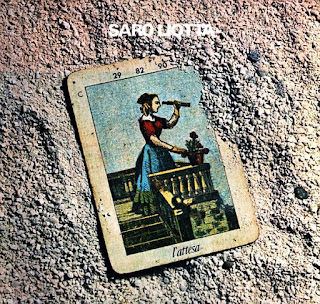 |
| Saro Liotta “L’Attesa”1976 Italy Prog Acoustic Folk |
 |
| Blue Sharks “It Became Crystal” 1972 Italy Psych Jazz Funk library |
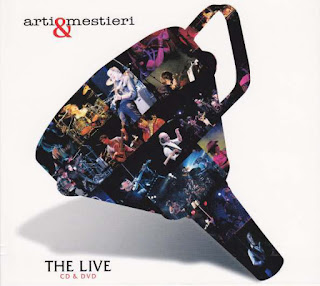 |
| Arti & Mestieri "The Live" 2014 Italy Prog Rock |
 |
| Gli Apostholi "Ho Smesso Di Vivere" 1979 Italy Prog Pop Rock |
 |
| Le Macchie Rosse "Luca / La Corsa"1969 single 7" + "Dolce Ragazza" 1970 single 7" + "Il Vento Della Notte / La Mia Stagione" 1971 single 7" Italy Psych Funk Rock,Prog |
 |
| Sezione Frenante "Nuove Dimensioni" 2019 Rock Progressivo Italiano |
 |
| Tito Schipa Jr. "Orfeo 9" 1973 Italy 2 x LP`s Prog Rock Opera |
 |
Cincinnato"Cincinnato" 1974 Italian Prog Jazz Fusion |
 |
| Astral Weeks “A Yellow Dawn” 1999 + "The Original Astral Weeks’ Sound" 1998 Italy Psych Blues Rock |
 |
| Astral Weeks “A Yellow Dawn” 1999 + "The Original Astral Weeks’ Sound" 1998 Italy Psych Blues Rock |
 |
| Biglietto Per L'Inferno “Biglietto Per L'Inferno” 1974 Italy Prog |
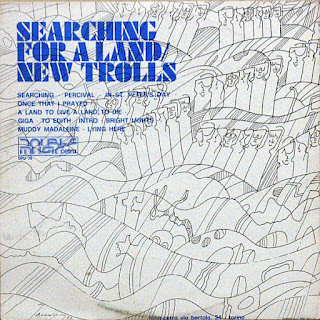 |
| New Trolls “Searching For A Land” 1972 Italy Prog Rock |
 |
| Pangea "Invasori" 1976 Italy Progressive Rock |
 |
| Museo Rosenbach “Zarathustra” 1973 Italian Prog masterpiece |
 |
| J.e.t. “Fede, Speranza, Carità” 1972 Italy Prog |
 |
| Il Paese Dei Balocchi “Il Paese Dei Balocchi” 1972 Italy Progressive,Symphonic |
 |
| Osage Tribe “Hypnosis” 2013 Italy Heavy Prog |
 |
| Bambi Fossati & Garybaldi “Blokko 45” 1996 Italian Heavy Prog,Hard Rock |
 |
| Citta Frontale “El Tor” 1975 Rock Progressivo Italiano |
 |
| Garybaldi “Live In Bloom” 2011 Italy Heavy Prog |
 |
| Analogy “Analogy” Germany/Italy 1972 + “The Suite”10" Second Album 1980- 2000 Akarma Label + Yoice (pre Analogy) "Sold Out / God`s Own Land" 1970 single + "Konzert" Live 2013 German Italy Prog Rock |
 |
| Analogy “Analogy” Germany/Italy 1972 + “The Suite”10" Second Album 1980- 2000 Akarma Label + Yoice (pre Analogy) "Sold Out / God`s Own Land" 1970 single + "Konzert" Live 2013 German Italy Prog Rock |
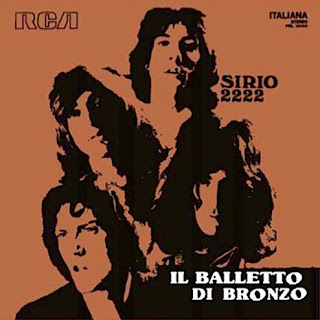 |
| ll Balletto Di Bronzo.“Sirio 2222” 1970 first album Italy Heavy Prog |
 |
| New Trolls “Concerto Grosso Per I New Trolls” 1971 Italian Prog Symphonic |
 |
| Spettri “Spettri” Great italian Progressive Rock, from the unreleased 1972 album, issued in october 2011 |
 |
| Procession “Frontiera” 1972 Italy Prog debut album |
 |
| Banco del Mutuo Soccorso “Darwin!” 1972 Rock Italiano progressivo |
 |
| Esagono “Vicolo” 1976 Itäly Jazz Rock Fusion |
 |
| Locanda Delle Fate ”Forse Le Lucciole Non Si Amano Più” 1977 Italy Prog Rock |
 |
| Tony Cucchiara "Caino E Abele" 1973 Italy Prog Rock Opera double album |
 |
| Richard (Riccardo) Cocciante "Atlanti"(Mu) 1973 Italy Prog Pop Rock |
 |
| Sage “Emancipated” 1972 Italy Jazz,Psych Soul |
 |
| Albergo Intergalattico Spaziale “Albergo Intergalattico Spaziale“1978 Italy Electronic Avant Garde Private |
 |
| Laser “Vita sul Pianeta” 1973 Italian Prog |
 |
| Alluminogeni "Metafisico” 2019 Rock Progressivo Italiano |
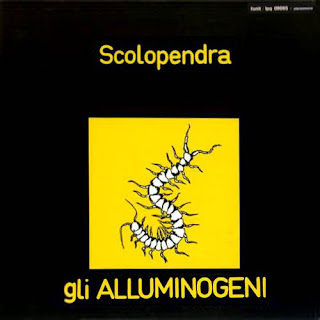 |
| Gli Alluminogeni “Scolopendra” 1972 mega rare Italian Prog |
 |
| Osanna"Rosso Rock" Live in Japan 2012 Rock Progressivo Italiano |
 |
| Ivano Fossati "Il Grande Mare Che Avremmo Traversato" 1973 Italy Prog Rock,Pop Rock (Delirium,I Sagittari-member) debut album |
 |
| Rumi "Il Volo Della Bolla" 1994 Private Limited edition of 500 copies signed by the artist recordings made between 1968 & 1969 Italy Prog Psych |
 |
| The Blues Right Off "Our Bluesbag" 1970 Private Italy Blues Rock (Venetian Power-members) |
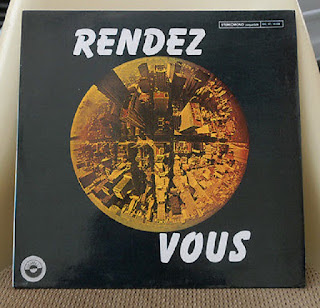 |
| Bruno Nicolai "Rendez Vous" 1975 Italy Experimental,Avant Garde,Soundrack |
 |
| Bambi Fossati & Garybaldi “Bambi Fossati & Garybaldi” 1990 Italy Heavy Prog |
 |
| La Bambibanda E Melodie “La Bambibanda E Melodie" 1974 Italy Prog Rock |
 |
| Gleemen “Gleemen” 1970 ultra rare Italian Prog Rock (Bambi Fossati & Garybaldi,Bambibanda e Melodie,Garybaldi) |
 |
| Garybaldi “Astrolabio” 1973 second album Italy Prog Rock |
 |
| Le Ali Del Vento "Unissued Album" 1971 / 1995 Italy Prog Rock |
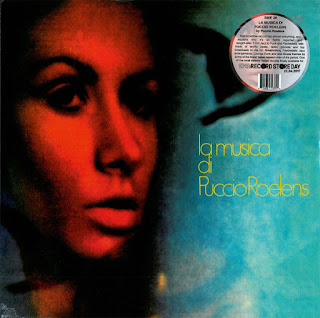 |
| Puccio Roelens "La Musica Di Puccio Roelens" 1969 ItalyPsych,Jazz Funk |
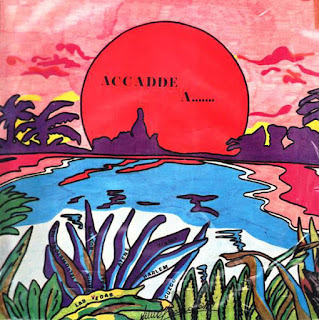 |
| Arawak "Accadde A…….“1970 Italian Jazz Funk |
 |
| The Cast Five Popsound "N.1" Italy Psych Pop Rock, Jazz-Funk, Rhythm & Blues |
 |
| Garybaldi "Storie di Un'altra Città" 2016 Italy Prog Rock |
 |
| Waterfall "Waterfall" 1972 very rare Private Italy Prog |
 |
| Raccomandata Con Ricevuta Di Ritorno "Per....Un Mondo Di Cristallo"1972 Italy Prog Rock first album |
 |
| ATP Cesare Regazzoni "Giobbe, Uno Degli Uomini"1977 Italy Prog Pop Rock |
 |
| Genfuoco “Dentro l'invisibile” 1979 ultra rare Italian Prog Symphonic gem |
 |
| I Califfi “Fiore Di Metallo”1973 Italy Prog monster |
 |
| Il Baricentro "Sconcerto" 1976 (100 Best Albums of Italian Progressive by Mox Cristadoro book) +"Trusciant"1978 Italy Instrumental Prog Jazz Rock Fusion (Festa Mobile members) |
 |
| Il Baricentro "Sconcerto" 1976 (100 Best Albums of Italian Progressive by Mox Cristadoro book) +"Trusciant"1978 Italy Instrumental Prog Jazz Rock Fusion (Festa Mobile members) |
 |
| Area "Arbeit Macht Frei (Il Lavoro Rende Liberi)" 1973 Italy Avant Prog masterpiece.. (100 Best Albums of Italian Progressive by Mox Cristadoro book) |
 |
| Reale Accademia Di Musica "Reale Accademia" 1972 Italy Prog (100 Best Albums of Italian Progressive by Mox Cristadoro book) (Fholks,Goblin,Libra members) |
 |
| Alphataurus "Alphataurus"1973 mega rare (tri-fold vinyl) Italian Prog,Symphonic,masterpiece..) (100 Best Albums of Italian Progressive by Mox Cristadoro book) |
 |
| Metamorfosi "Inferno" 1973 Italian Prog,Symphonic masterpiece (100 Best Albums of Italian Progressive by Mox Cristadoro book) A highlight of Italian prog |
 |
| Blocco Mentale "Πoα" 1973 mega rare Italian Prog Rock masterpiece (100 Best Albums of Italian Progressive by Mox Cristadoro book) |
 |
| Anonima Sound Ltd. “Red Tape Machine"1972 monster rare Arcobaleno label, Italy Psych,Blues Rock (100 Best Albums of Italian Progressive by Mox Cristadoro book) |
 |
| Arti & Mestieri “Tilt Immagini Per Un Orecchio” 1974 Italy Prog Jazz Fusion one of the best Italian albums on prog scene in 70`s (100 Best Albums of Italian Progressive by Mox Cristadoro book) |
 |
| Perigeo “Abbiamo Tutti Un Blues Da Piangere” 1973 Italy Prog Jazz Rock Fusion (100 Best Albums of Italian Progressive by Mox Cristadoro book) |
 |
| Premiata Forneria Marconi "Live In Usa" 1974 Italy Prog Symponic Rock,Jazz Rock,Art Rock (100 Best Albums of Italian Progressive by Mox Cristadoro book) |
 |
| Piazza Delle Erbe “Saltaranocchio” 1977 Italy Prog Rock |
 |
| Festa Mobile"Diario Di Viaggio Della Festa Mobile" 1970 Italy Prog Rock (100 Best Albums of Italian Progressive by Mox Cristadoro book) (Il Baricentro-members) |
 |
| Claudio Rocchi "Volo Magico N.1" 1971 Italy Prog Folk Rock (100 Best Albums of Italian Progressive by Mox Cristadoro book) (Stormy Six-member & feat New Trolls, Nuova Idea, Track, Caramella-members) |
 |
| Rocky's Filj “Storie Di Uomini E Non” 1973 Italy Prog Jazz Rock (100 Best Albums of Italian Progressive by Mox Cristadoro book) |
 |
| Delirium "Dolce Acqua" 1971 Italy Prog Rock (100 Best Albums of Italian Progressive by Mox Cristadoro book) debut album |
 |
| Venegoni & Co. "Rumore Rosso" 1977 IT Prog Jazz Rock Fusion (100 Best Albums of Italian Progressive by Mox Cristadoro book) debut album (Arti & Mestieri, Procession-members) |
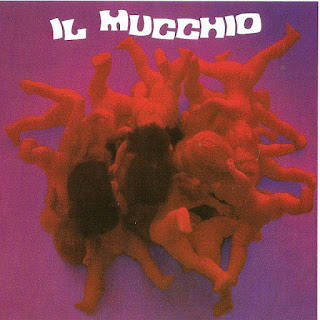 |
| Il Mucchio "Il Mucchio" 1970 ultra rare Italy Prog Psych (100 Best Albums of Italian Progressive by Mox Cristadoro book) |
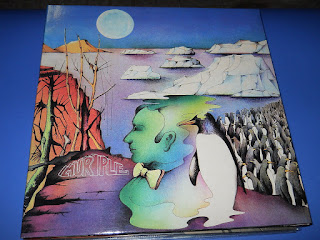 |
| Murple "Io Sono Murple" 1974 Italy Prog Symphonic (100 Best Albums of Italian Progressive by Mox Cristadoro book) (Il Balletto Di Bronzo,Angelo Branduardii’s live band-member) |
 |
| Panna Fredda "Uno" 1971 mega rare Italian Prog monster (100 Best Albums of Italian Progressive by Mox Cristadoro book) (Capsicum Red-member) |
 |
| Alusa Fallax "Intorno Alla Mia Cattiva Educazione" 1974 Italy Prog Rock (100 Best Albums of Italian Progressive by Mox Cristadoro book) |
 |
| Capsicum Red "Appunti Per Un'Idea Fissa" 1972 Italy Prog Symphonic (100 Best Albums of Italian Progressive by Mox Cristadoro book) (Panna Fredda,Pooh-members) |
 |
| Cervello “Melos” 1973 Italy Prog Rock (100 Best Albums of Italian Progressive by Mox Cristadoro book) |
 |
| Formula 3 "Sognando E Risognando"1972 Italy Prog (100 Best Albums of Italian Progressive by Mox Cristadoro book) (Il Volo, Quelli, The Big Ben's,I Camaleonti, I Samurai-members) |
 |
| Rovescio Della Medaglia “La Bibbia”1971 Italy Heavy Prog (100 Best Albums of Italian Progressive by Mox Cristadoro book) debut album |
 |
| Aktuala"Aktuala"1973 Italy Experimental,Avant Garde,Ethnic Avant Folk (100 Best Albums of Italian Progressive by Mox Cristadoro book) |
 |
| Agora "Live In Montreux" 1975 Italy Jazz Rock Fusion (100 Best Albums of Italian Progressive by Mox Cristadoro book) debut album |
 |
| Acqua Fragile "Mass-Media Stars"1974 Italy Prog Symphonic (100 Best Albums of Italian Progressive by Mox Cristadoro book) (Premiata Forneria Marconi, I Dik Dik-members) |
 |
| Circus 2000 "Circus 2000"1970 ultra rare Italy Prog Psych monster (100 Best Albums of Italian Progressive by Mox Cristadoro book) (Duello Madre,Living Life-members) |
 |
| Area "Maledetti" 1976 Italy Avant Prog,Jazz Rock,Experimental (100 Best Albums of Italian Progressive by Mox Cristadoro book) |
 |
| Area "Are(A)Zione"1975 IT Avant Prog,Jazz Rock,Experimental (100 Best Albums of Italian Progressive by Mox Cristadoro book) |
 |
| Cherry Five "Cherry Five" 1975 Italy Prog Rock (100 Best Albums of Italian Progressive by Mox Cristadoro book) (Goblin, L'Uovo di Colombo,Rustichelli & Bordini-members) |
 |
| Uno "Uno" 1974 Italy Prog Rock (100 Best Albums of Italian Progressive by Mox Cristadoro book) (Città Frontale,Luna, Nova Osanna,Tunnel,The Showmen, Hellza Poppin-members) |
 |
| The Trip"Caronte"1971 IT / UK Prog Rock (100 Best Albums of Italian Progressive by Mox Cristadoro book) |
 |
| Alan Sorrenti "Aria" 1972 Italy Prog Folk Rock (100 Best Albums of Italian Progressive by Mox Cristadoro book) |
 |
| Sensations' Fix “Finest Finger” 1976 Italy Prog Rock (100 Best Albums of Italian Progressive by Mox Cristadoro book) (Sheriff,Campo Di Marte, Noi Tre,Triade-members) |
 |
| Procession"Fiaba"1974 Italy Prog Rock (100 Best Albums of Italian Progressive by Mox Cristadoro book) (Raccomandata Ricevuta Ritorno,Arti & Mestieri,The Paul Kelly Band-members) |
 |
| Pholas Dactylus"Concerto Delle Menti"1973 Italy Avant Garde Prog (100 Best Albums of Italian Progressive by Mox Cristadoro book) |
 |
| Planetarium "Infinity" 1971 ultra rare Italy Prog Space Rock (100 Best Albums of Italian Progressive by Mox Cristadoro book) |
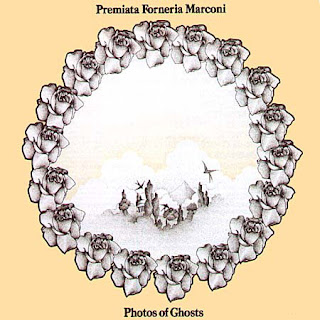 |
| Premiata Forneria Marconi "Photos Of Ghosts" 1973 Italy Prog (100 Best Albums of Italian Progressive by Mox Cristadoro book) |
 |
| Edgar Allan Poe “Generazioni (Storia Di Sempre)” 1974 Italy Prog (100 Best Albums of Italian Progressive by Mox Cristadoro book) |
 |
| Osanna “L'Uomo” 1972 Italy Prog Hard Rock (100 Best Albums of Italian Progressive by Mox Cristadoro book) (Città Frontale,Luna, Nova,Tunnel,Uno,The Showmen,Nova-members) |
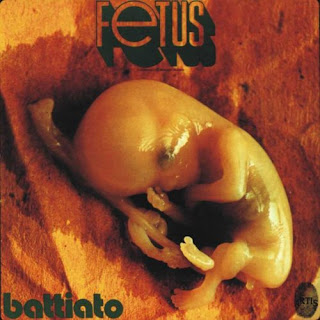 |
| Franco Battiato "Fetus" 1972 Italy Prog Electronic,Experimental |
 |
| Telaio Magnetico “Live ‘75” 1975 Italy Prog Electronic supergroup (with Juri Camisasca & Franco Battiato) |
 |
| Banco Del Mutuo Soccorso “Banco Del ….” 1972 Italian Prog masterpiece (100 Best Albums of Italian Progressive by Mox Cristadoro book)..Top Classic…! |
 |
| Jumbo "Vietato Ai Minori Di 18 Anni ?" 1973 Italy Prog (100 Best Albums of Italian Progressive by Mox Cristadoro book) |
 |
| Le Orme "Collage" 1971 +"Felona E Sorona"1972 + "Verita Nascoste"1976 Italy Prog Symphonic masterpieces...! (100 Best Albums of Italian Progressive |
 |
| Le Orme "Collage" 1971 +"Felona E Sorona"1972 + "Verita Nascoste"1976 Italy Prog Symphonic masterpieces...! (100 Best Albums of Italian Progressive |
 |
| Le Orme "Collage" 1971 +"Felona E Sorona"1972 + "Verita Nascoste"1976 Italy Prog Symphonic masterpieces...! (100 Best Albums of Italian Progressive |
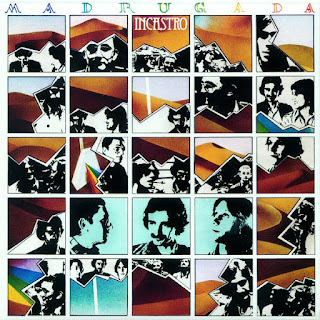 |
| Madrugada "Incastro" 1977 Italy Prog Folk Rock (100 Best Albums of Italian Progressive by Mox Cristadoro book) (Pangea, Premiata Forneria Marconi-members) |
 |
| Jacula "Tardo Pede In Magiam Versus" 1972 IT Prog,Symphonic dark masterpiece (100 Best Albums of Italian Progressive by Mox Cristadoro book) (Antonius Rex members) |
 |
| Latte E Miele "Passio Secundum Mattheum" 1972 Italy Prog Symphonic (100 Best Albums of Italian Progressive by Mox Cristadoro book) |
 |
| Maxophone"Maxophone"1975 Italy Prog (100 Best Albums of Italian Progressive by Mox Cristadoro book) a minor masterpiece..! |
 |
| Il Rovescio Della Medaglia "Microstorie"2011 Italy Prog Rock |
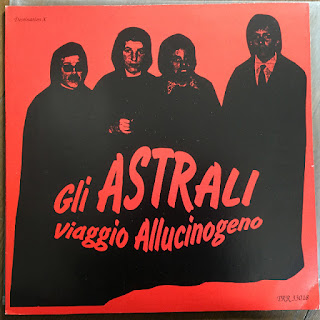 |
| Gli Astrali "Viaggio Allucinogeno" 1994 IT Beat Psych Rock (Recorded 1967 - 1968) |
 |
| Murple "Il Viaggio"2014 Italy Prog Rock |
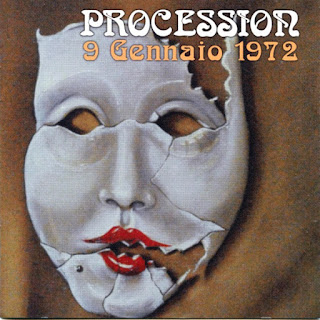 |
| Procession "9 Gennaio 1972" 2012 Italy Prog Blues Rock (Recorded at LIO CLUB in Chieri (TO) on 9 January 1972) (bootleg) |
 |
| Raccomandata Ricevuta Ritorno"In Rock” 2019 Italy Prog |
 |
| Genfuoco "Genfuoco Live" 2001 Italy Prog Symphonic |
 |
| The Psycheground Group “Psychedelic And Underground Music” 1971 mega rare Italy Psych Rock (Equipe 84, J. Plep, Nuova Idea, Opus Avantra,Track,Fourth Sensation,The Underground Set-members) |
 |
| Claudio Simonetti's Goblin "The Devil Is Back" 2019 Italy Prog Rock |
 |
| Pholas Dactylus “Hieros Gamos” 2019 Italy Prog Rock |
 |
| Dalton "Eden" 2019 Italy Prog Folk Rock |
 |
| Michele Conta (ex- Locanda Delle Fate) “Endless Nights” 2019 Italy Prog,Art Rock (feat King Crimson, Porcupine Tree,Renaissance-member) |
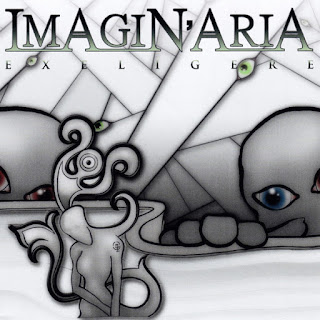 |
| Imagin’ Aria ‘Exeligere” 2019 Italy Prog,Symphonic |
 |
| Emmanuele Correani "Embrione"2008 Italy Prog Rock |
 |
| Data "Strada Bianca" 1974 Italy Pop Rock |
 |
| Nomadi “I Nomadi interpretano Guccini” 1974 Italy Prog Pop Rock |
 |
| Nomadi "Nomadi Dentro" 2017 Italy Pop Rock |
 |
| La Quinta Stagione "La Quinta Stagione" 1978 Italy Prog Rock |
 |
| Formula 3 "Dies Irae" 1970 Italy Psych Rock very rare debut LP in Numero Uno label |
 |
| Aliante "Sul Confine" 2019 Italy Neo Prog Symphonic,excellent second album |
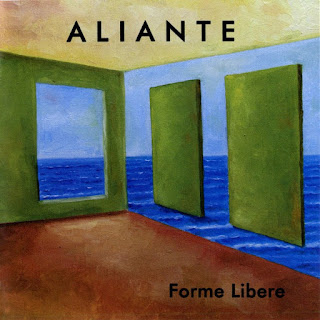 |
| Aliante "Forme Libere" 2017 Italy Prog Symphonic Release: 06/09/2017 debut album |
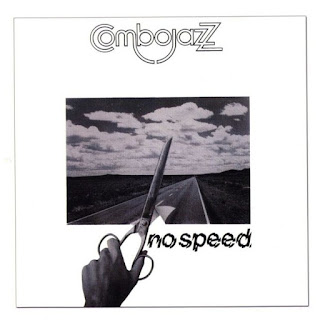 |
| Combojazz "No Speed"1980 very rare Private Italy Jazz Rock fusion (feat two former members by Esagono & Venegoni & Co) |
 |
| New Trolls "UT" 1972 Italy Prog,Symphonic Heavy Prog |
 |
| Wicked Minds "Visioni, Deliri E Illusioni" 2011 (Tribute To Italian Prog) 2x LP`s Italy Heavy Prog |
 |
| Wicked Minds “Witchflower” 2006 Italy Heavy Prog,Space Rock,Hard Rock,double Lp |
 |
| Braen’s Machine”Underground” 1971 Italy Prog |
 |
| Track "Track Rock" 1974 ultra rare Italy Prog,Psych (Equipe 84, J. Plep,Nuova Idea, Opus Avantra, The Psycheground Group,New Trolls-members) |
 |
| Paciana Story (members by Dalton) “Opera Pop” 1975 Italy Private Prog Pop,Folk Rock |
 |
| Piero, Ezio e Tino "Mi Chiamo Piero“ 1972 mega rare on French Barclay label Italy Prog |
 |
| Fili D'erba “Fili D'erba” 1972 Italy Prog Pop Rock |
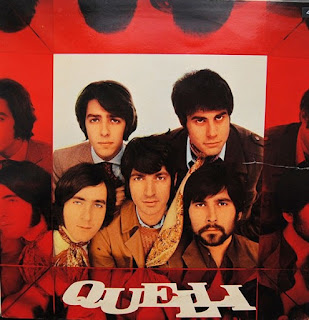 |
| Quelli “Quelli” (pre PFM) 1969 Italy Beat Prog Pop |
 |
| Enzo Capuano “Storia Mai Scritta” 1975 Rock Progressivo Italiano |
 |
| Esagono “Vicolo” 1976 Itäly Jazz Rock Fusion |
 |
| Showmen 2 (Napoli Centrale) "Showmen 2" 1972 Italy Prog Jazz Rock |
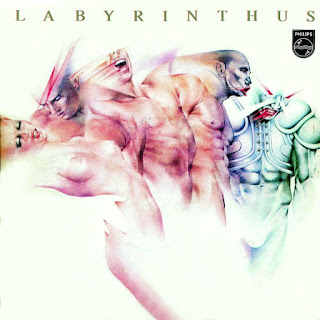 |
| Labyrinthus “Labyrinthus” 1978 Italy Prog Rock, double album |
 |
| Mediterranea “Ecce Rock” 1981 Italy Prog Rock |
 |
| Moby Dick "Moby Dick" 1972 Italy Hard Rock |
 |
| Andromeda "Andromeda Volume 1" 1978 Italy Prog |
 |
| Franco Maria Giannini "Affresco"1974 mega rare Italian Prog Folk Rock (feat Quella Vecchia Locanda & Libra members) |
 |
| Falena "Una Seconda Strana Sensazione" 2019 Rock Progressivo Italiano |
 |
| Le Orme "Sulle Ali Di Un Sogno" 2019 Italy Prog Rock (feat David Cross- ex-King Crimson ) |
 |
| Eris Pluvia "Tales From Another Time" 2019 Italy Prog Symphonic |
 |
| Eris Pluvia “Different Earths” 2016 Italy Prog Rock |
 |
| La Maschera Di Cera "La Maschera Di Cera " 2002 Italy Prog Symphonic,debut album |
 |
Piero e i Cottonfields "Il Viaggio, La Donna, Un'Altra Vita" 1972 Italy Prog Pop Rock (Magority One) |
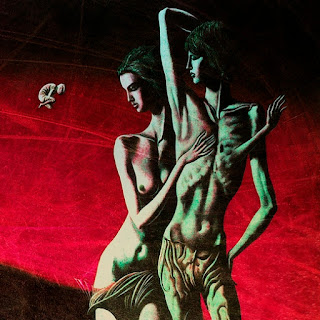 |
| La Maschera Di Cera "Le Porte Del Domani"2013 Italy Prog Symphonic |
 |
| Alberto Radius"Che Cosa Sei"1976 Italy Pop Rock second album |
 |
| I Santoni "Noi"1972 Italy Psych Prog, ultra rare in Car Juke Box label |
 |
| Hunka Munka "Dedicato A Giovanna G" 1972 Italy Prog,Symphonic mega rare on Ricordi label (Anonima Sound,I Dik Dik,Osage Tribe,The Trip-members) |
 |
| Errata Corrige "Siegfried, Il Drago E Altre Storie"1976 ultra rare Private +"Mappamondo" 1992 CD Italy Prog,Symphonic |
 |
| Errata Corrige "Siegfried, Il Drago E Altre Storie"1976 ultra rare Private +"Mappamondo" 1992 CD Italy Prog,Symphonic |
 |
| Officina Meccanica "La Follia Del Mimo Di Fuoco"2007 (recordings (1976-1978) Italy Prog Art Rock (Barbati E Maiozzi,Stazione Termini-members) |
 |
| Stefano Testa "Una Vita Una Balena Bianca E Altre Cose"1977 Italy Prog Folk Rock masterpiece |
 |
| Mauro Pelosi "La Stagione Per Morire"1972 very rare Italy Prog Folk Rock (feat Gianni Leone from Il Balletto Di Bronzo) |
 |
| Buon Vecchio Charlie "Buon Vecchio Charlie" 1972 Italy Prog Symphonic |
 |
| Automat "Automat" 1978 Italy Electro Space,Disco Ambient |
 |
| I Cocai “Piccolo Grande Vecchio Fiume” 1977 Italy Prog Symphonic |
 |
| Pepe Maina "Res Obscura" 2018 Italy Prog,Electronic,Experimental |
 |
| Gruppo 2001 "L'alba Di Domani" 1972 Italy Prog Rock |
 |
| Vittorio De Scalzi E Nico Di Palo (New Trolls) “Due Di Noi” 2018 Italy Prog Pop Rock |
 |
| I Numi "Alpha Ralpha Boulevard"1971 Italy Prog mega rare in Polaris label |
 |
| I Boom "I Boom"1973 Italy Beat,Prog mega rare in Smash Original Cast label |
 |
| Il Balletto Di Bronzo"Di Lino Ajello E Marco Cecioni - Cuma” 2016 DC" 2016 Italy Prog Rock |
 |
| Biglietto Per L’Inferno "Live 1974" 2005 Italy Prog Rock |
 |
| Nova “Blink”1976 Italy Prog Jazz Fusion (Circus 2000, Duello Madre,Città Frontale,Luna,Osanna,Uno,Brand X, Stomu Yamash'ta's Red Buddha Theatre,The Showmen,Cervello-members) debut album |
 |
| Twenty Four Hours "Left to live"2016 Italy Psych Prog |
 |
| Ananda Mida "Cathodnatius" 2019 Italy Psych,Stoner |
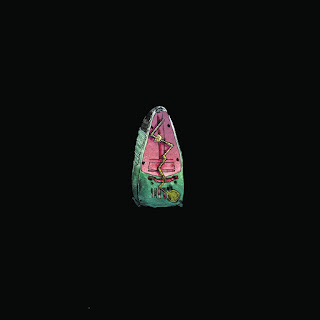 |
| Fabio Zuffanti “In/Out"2019 Italy Prog Rock (Maschera Di Cera) |
 |
| La Pentola Di Papin “Zero-7” 1977 Italy Prog Rock |
 |
| Logan Dwight "Logan Dwight"1972 ultra rare Italy Prog Rock (Libra member) |
 |
| Blue Beard “Blue Beard” 1971 UK / Italy Prog Psych,Blues Rock (Recorded and released only in Italy) |
 |
| I Raminghi "Il Lungo Cammino Dei Raminghi" 1972 Italy Heavy Prog Psych mega rare in Bentler label |
 |
| India Serighelli “Bio Feed Back” 1975 Italy Folk Psych-Prog (played by Angelo “India” Serighelli, ex Raminghi’s guitarist) |
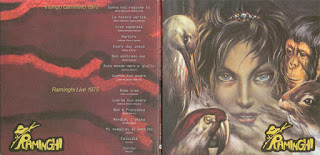 |
| I Raminghi “Live” Unreleased Live 1975 Italian Progressive |
 |
| Antonius Rex “Ralefun” 1979 Italy Prog Rock (Jacula members) |
 |
| Il Giro Strano “La Divina Commedia”1990 (rec 1973) Italy Prog Rock (Corte Dei Miracoli member) |
 |
| Triade"La Storia Di Sabazio"1973 Italy ultra rare Prog Symphonic monster |
 |
| Ballettirosadimacchia “Ballettirosadimacchia” 1974 Italy Prog |
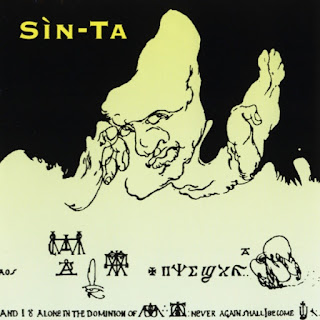 |
| Sin-Ta "Sin-Ta"1996 EP Italy Psych Prog,Doom Metal |
 |
| Distillerie di Malto "Suono" 2013 Italy Prog Rock |
 |
| Alphataurus “Live In Bloom” 2012 Italy Prog Rock |
 |
| La Coscienza Di Zeno "Sensitivita" 2013 Italy Prog Rock second album |
 |
| Venetian Power "The Arid Land" 1971 very rare Italy Prog Art Rock,Theatrical Rock (Le Stelle di Mario Schifano, The Blues Right Off-members) |
 |
| Ricordi d'Infanzia "Io Uomo" 1973 Italy Heavy Prog mega rare Cetra label (Gli Aspidi-members) |
 |
| Lanzetti Roversi "Quasi English" 2015 Italy Prog Rock (Acqua Fragile,Premiata Forneria Marconi,Moongarden-members) |
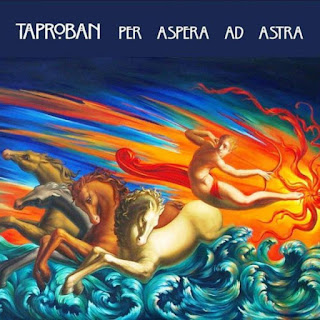 |
| Taproban "Per Aspera Ad Astra" 2017 Italy Prog,Symphonic,Neo Classical |
 |
| Luciano Basso"Cogli Il Giorno" 1978 Italy Prog Symphonic,second album (Il Mucchio-member) |
 |
| Ping Pong "About Time" 1971 + "Ping Pong" 1973 Italy Prog Rock |
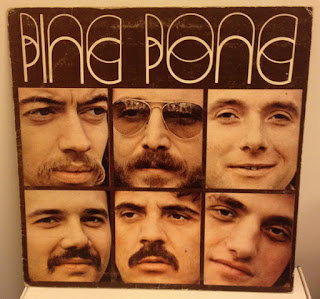 |
| Ping Pong "About Time" 1971 + "Ping Pong" 1973 Italy Prog Rock |
 |
| Roberto Colombo "Sfogatevi Bestie" 1976 Italy Prog Jazz Rock Fusion |
 |
| Condor “Viaggio” 1985 very rare Italy Private Prog Rock |
 |
| Antonio Vuolo & Elio Grande "Desert" 1979 Italy Prog,Electronic,Jazz Fusion |
 |
| Eris Pluvia "Rings Of Earthly Light"1991 + "Third Eye Light" 2010 Italy Prog Symphonic,two excellent first albums by Eris Pluvia |
 |
| Eris Pluvia "Rings Of Earthly Light"1991 + "Third Eye Light" 2010 Italy Prog Symphonic,two excellent first albums by Eris Pluvia |
 |
| Mangala Vallis "Voices" 2020 Italy Prog Rock |
 |
| Aldo Tagliapietra (Le Orme) “Invisibili Realta” 2017 Italy Prog Rock |
 |
| Genco Puro & Co "Area Di Servizio"1972 Italy Prog mega rare in Bla Bla label (feat -Franco Battiato) |
 |
| Acqua Fragile "A New Chant" 2017 Italy Prog Rock |
 |
| Paolo Ferrara "Profondita" 1977 ultra rare Italy Prog Rock double LP |
 |
| Luciano Basso "Voci" 1976 Italy Prog Rock debut album (Il Mucchio-member) |
 |
| Odissea “Odissea” 1973 + “ Unione / Cuor Di Rubino” 1973 single 7" Rock Progressivo Italiano |
 |
| Spirale “Spirale” 1974 mega rare Italy Private Prog Jazz Rock monster |
 |
| Silvano Chimenti “Droga” 1972 mega rare Italy Electronic Psych Prog,Jazz Rock |
 |
| Fabio Celi E Gli Infermieri “Follia” recorded 1969 released 1973 ultra rare Italy Psych Prog Rock (Napoli Centrale,Renzo Arbore L'Orchestra Italiana-members) |
 |
| Kaleidon "Free Love" 1973 Italy Jazz Rock Fusion ultra rare Fonit Cetra label (La Rosa Dei Venti,UT,Samadhi-members) |
 |
| Toni Esposito "Rosso Napoletano" 1974 Italy Jazz Rock Fusion debut album |
 |
| Maad "Maad" 1976 Italy Jazz Rock Fusion |
 |
| I Leoni "La Foresta"1971 Italy Melodic Prog Pop Rock mega rare in Ricordi label |
 |
| Gruppo D'alternativa "Ipotesi" 1972 Italy Avant Prog,Experimental, very rare in Harvest label |
 |
| I Gregor "I Gregor" 1975 Italy very rare Soft Prog |
 |
| Murple "Quadri Di Un'Esposizione" 2008 Italy Prog Rock |
 |
| Oz Master Magnus Ltd."Oz Master Magnus Ltd." 1972 Italy Private Prog Pop Folk Rock (Agorà-members) |
 |
| Fourth Sensation "Fourth Sensation" 1970 Italy Psych Garage, mega rare in Ricordi label (The Psycheground Group, Il Volo,Area-members) |
 |
| J.B. Banfi (Biglietto Per l'Inferno) “Galaxy My Dear” 1978 Italy Experimental,Ambient,Electronic,Berlin School |
 |
| Paciana Story (members by Dalton) “Opera Pop” 1975 Italy Private Prog Pop,Folk Rock |
 |
| Pino Daniele “Nero A Metà live - Il Concerto - Milano” 22-12- 2014 Italy Blues Rock,Pop Rock 2 CD`s |
 |
| Messaggio 73 "Una Ragione Per Vivere" 1975 Italy Prog Rock |
 |
| Tony Verde "Calypso" 1977 Italy Prog Latin Jazz Rock (Saint Just member) (feat David Voorhaus & Vincent Crane by Atomic Rooster) |
 |
| Richard (Riccardo) Cocciante "Atlanti"(Mu) 1973 Italy Prog Pop Rock |
 |
| Janus "Janus" CD Compilation 1995 (1976-77) Italy Prog Rock |
 |
| Maze 1066 "Rétrospective Vol. 1" 1985 Cassette only Italy Electronic,Experimental |
 |
| Zauber "Phoenix"1992 (rec in 1977 &1991) Italy Prog Rock |
 |
| Luna "Luna"1981 Italy Soft Prog (Città Frontale,Nova, Osanna,Tunnel,Uno-members) |
 |
| Massimo Ruggeri “Controcorrente” 1979 Italy ultra rare Private Prog Xian Pop Rock |
 |
| Living Music “To Allen Ginsberg” 1972 Italy Psych Acid Folk,Avant Jazz,Art Rock |
 |
|
|
 |
| Venegoni & Co. " Live... Somewhere In The Seventies..." 2003 (rec 1979) Italy Prog Jazz Rock Fusion |
 |
| Quicksand "Ultimo Atto" 1976 (released 2013) Italy Prog Rock (bootleg) |
 |
| Jek Dicoppe & Kilroy "Kramemboli" 1981 Italy Prog Art Rock,New Wave,Post Punk |
 |
| Nascita Della Sfera "Per Una Scultura Di Ceschia" 1978 Italy Private Prog,Experimental,Electronic,Avant Garde (Andromeda-member) |
 |
| Arturo Stalteri "Andre Sulla Luna" 1979 Italy Prog Symphonic (Pierrot Lunaire) debut album |
 |
| Black Spirit "Black Spirit" 1978 Italy / Germany Heavy Prog,Hard Rock released in Brutkasten label |
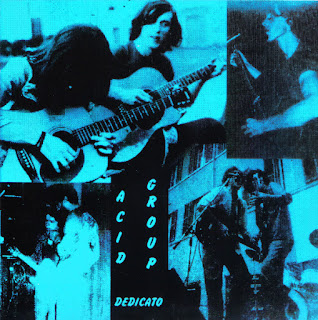 |
| Acid Group “Dedicato” 1978 Italy Beat Prog CD 1998 |
 |
| Capitolo 6 “Frutti Per Kagua” 1972 Italian Prog (100 Best Albums of Italian Progressive by Mox Cristadoro book) |
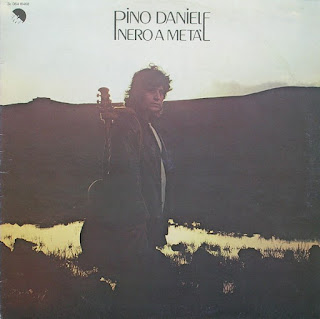 |
| Pino Daniele “Nero A Metà“ 1980 Italy Pop Rock,Blues Rock recommended…!! one of the best Italian records ever |
 |
| Abissi Infiniti “Tunnel” 1981 Italy Prog Symphonic |
 |
| Alberomotore “Il Grande Gioco” 1974 Italian Prog |
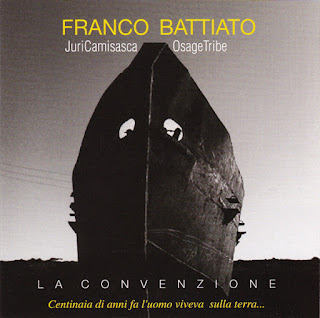 |
| Juri Camisasca & Franco Battiato & Osage Tribe “La Convenzione” Recorded 1972-75 CD 2002 Italy Prog Rock |
 |
| Picchio Dal Pozzo“Picchio Dal Pozzo”1976 Italy Prog Jazz Rock debut album Canterbury scene highly recommended...! |
 |
| Picchio Dal Pozzo“Abbiamo Tutti I Suoi Problemi” 1980 Italy Avant garde,Prog, Canterbury scene second album |
 |
| Elektriktus “Electronic Mind Waves” 1976 Italy Prog Electronic,Experimental,Avant Garde |
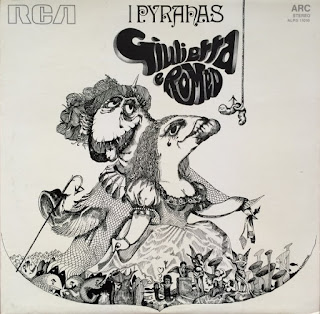 |
| I Pyranas “Romeo E Giulietta”1969 mega rare Italy Psych Jazz Funk,Beat,R & Blues |
 |
| Carré, Ladich, Marchal "Science & Violence:"1979 Italy Private Prog ,Psych,Space Rock (Janus drummer Mario Ladich) |
 |
| Maurizio Arcieri "Trasparenze" 1973 Italy Prog Rock (New Dada-member) (feat The Blues Right Off, Venetian Power-member) |
 |
| Perigeo "Live at Montreux" 1975 Italy Jazz Rock Fusion |
 |
| Toto Torquati "Gli Occhi Di Un Bambino" 1973 rare Italy Prog Rock |
 |
| Vanexa"Vanexa" 1982 rare Italian Heavy Metal |
 |
| l Balletto Di Bronzo.“Sirio 2222” 1970 first album Italy Heavy Prog |
 |
| Banco del Mutuo Soccorso “Darwin!” 1972 Italy Prog Symphonic (100 Best Albums of Italian Progressive by Mox Cristadoro book) |
 |
| Napoli Centrale “Napoli Centrale” 1975 (100 Best Albums of Italian Progressive by Mox Cristadoro book) +"Mattanza" 1976 +"Qualcosa Ca Nu' Mmore" 1978 Italy Jazz Rock Fusion |
 |
| Napoli Centrale “Napoli Centrale” 1975 (100 Best Albums of Italian Progressive by Mox Cristadoro book) +"Mattanza" 1976 +"Qualcosa Ca Nu' Mmore" 1978 Italy Jazz Rock Fusion |
 |
| Napoli Centrale “Napoli Centrale” 1975 (100 Best Albums of Italian Progressive by Mox Cristadoro book) +"Mattanza" 1976 +"Qualcosa Ca Nu' Mmore" 1978 Italy Jazz Rock Fusion |
 |
| Free Wave System “Nonostante Tutto” 1981 Italy Jazz Fusion |
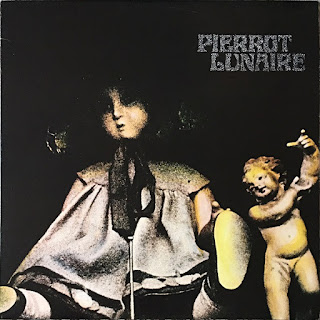 |
| Pierrot Lunaire“Pierrot Lunaire“ 1974 +“Gudrun”1977 (100 Best Albums of Italian Progressive by Mox Cristadoro book) + “Tre” 2011 Italy Prog Experimental Avant Garde |
 |
| Pierrot Lunaire“Pierrot Lunaire“ 1974 +“Gudrun”1977 (100 Best Albums of Italian Progressive by Mox Cristadoro book) + “Tre” 2011 Italy Prog Experimental Avant Garde |
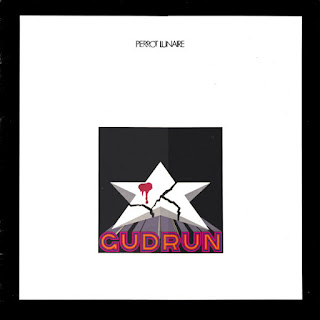 |
| Pierrot Lunaire“Pierrot Lunaire“ 1974 +“Gudrun”1977 (100 Best Albums of Italian Progressive by Mox Cristadoro book) + “Tre” 2011 Italy Prog Experimental Avant Garde |
 |
| Pino Daniele “Pino Daniele” 1979 second album Italy Pop Rock |
 |
| Lucio Battisti “Emozioni” 1970 Italy Pop Rock |
 |
| Piero Umiliani “To-Day’s Sound” 1973 Italy ultra rare excellent jazz- rock-r & b,beat-undergroud -country recommended..! |
 |
| London Underground ”London Underground” 2000 Italy Psych Space Rock |
 |
| Mirror “Secret Convention / Fire in My Life” single 7″ rare Italian femalle fuzz psych Recorded in Abbey Road studios |
 |
| The Duke Of Burlington “The Duke Of Burlington”1970 Italy Psych Funk (Best 100 European Grooves Groove Collector) |
 |
| H.Tical aka Armando Sciacia “Distortions Pop” or Blue Phantom”Distortions” 1971 Italy Psych Space Rock (100 Best Albums of Italian Progressive by Mox Cristadoro book) |
 |
I Ragazzi del Sole "Il Suono del Sole"Italy 1970 Italy Psych Beat |
 |
| Juri Camisasca "La Finestra Dentro" 1974 Rock Progressivo Italiano (100 Best Albums of Italian Progressive by Mox Cristadoro book) |
 |
| Sandro Brugnolini “Underground” 1970 Italy Avant-garde Jazz, Psych Rock, Jazz-Funk,Jazz-Rock Soundtrack |
 |
| Nuova Era “Return To The Castle” 2016 Italy Prog Symphonic Rock |
 |
| Railroad “ Railroad” 1976 Italy Blues Rock |
 |
| Il Rovescio Della Medaglia “Contaminazione” 1973 Italy Prog Rock (100 Best Albums of Italian Progressive by Mox Cristadoro book) |
 |
| Witchwood “Handful of Stars” 2016 Italy Melodic Prog Hard Rock |
 |
| Angus “London” 1996 Italy Psych Rock rare & fine jamming Neopsych album by italian Maurizio Bidoli german only pressing |
 |
| London Underground “Honey Drops” 2010 Italy Psych Prog Rock third album |
 |
| Janus “Al Maestrale” 1978 ultra rare Private Italian Prog |
 |
| Mother Island “Wet Moon” 2016 Italy Psych Rock by Go Down Records |
 |
| Chaos Physique “1975″ 2011 Italian-French Psych Rock,Experimental,Electronic,Post Rock |
 |
| Istvan “Istwan” 2016 Italy Psych Stoner Rock |
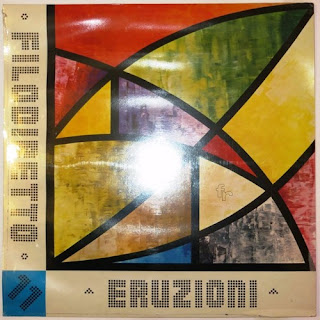 |
| Oscar Lindok “Eruzioni” 1974 Italy Explosive Psych Jazz Funk |
 |
| Mack Porter “Peace On You” 1972 Ghana / Italy Psych Rock |
 |
| Ii Rovescio della Medaglia “Live In Tokyo” 2014 Italy Heavy Prog |
 |
| Pino Daniele “Scio” 1984 Live double LP Italy Pop Rock,Blues Rock (feat Nanà Vasconcelos & Gato Barbieri) |
 |
|
|
 |
| Jet Lag “Delusione Ottica” 2001 Italy Prog |
 |
| Perigeo "Genealogia" 1974 Italy Fusion, Experimental, Prog Rock, Jazz-Rock |
 |
| New Trolls “N.T Atomic System “ 1973 Italy Prog Rock |
 |
|
|
 |
| Gianni Fallabrino “Music For Sensations” 1971 Italy Prog,Electronic Jazz Rock |
 |
| La Compagnia Digitale “La Compagnia Digitale” 1979 Italy Prog Space Rock |
 |
| Duello Madre “Duello Madre” 1973 Italy Prog Jazz Rock |
 |
| Giorgio Valentinuzzi “Cosa Dici Allla Sera"1981 Italy Private Prog Psych |
 |
| Cellar Noise “Alight” 2017 Italy Prog Rock |
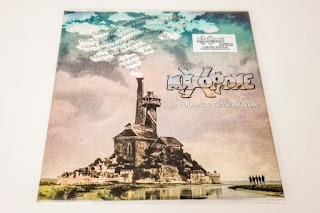 |
| Maxophone “ La Fabbrica Delle Nuvole” 2017 Italy Prog Rock new album |
 |
| Pierpaolo Bibbò "Diapason" 1980 Italy Prog Electronic,Symphonic |
 |
| Living Life "Mysterious Dream"1981 Italy Prog Jazz Rock (Circus 2000,I Ragazzi Del Sole-members) |
 |
| Pepe Maina"Il Canto Dell'Arpa E Del Flauto"1977 Italy Prog,Experimental,Electronic,Minimal |
 |
| I Teoremi “I Teoremi” 1972 mega rare Italian Prog (100 Best Albums of Italian Progressive by Mox Cristadoro book) |
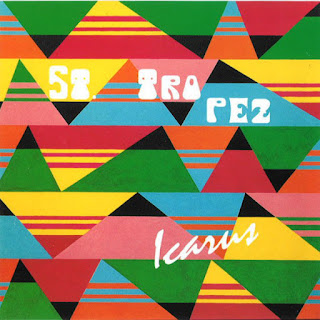 |
| St. Tropez "Icarus"1977-1978 Rock Progressivo Italiano |
 |
| New Trolls "Concerto Grosso 3 The Seven Seasons" 2007 Italy Prog Symphonic |
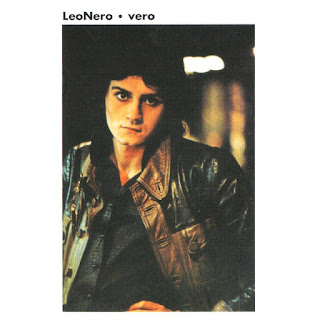 |
| Leo Nero "Vero" 1977 ultra rare Gianni Leone (Il Balletto di Bronzo) Solo Lp Italy Prog |
 |
| Taberna Mylaensis "Gricalata" 1981 Italy Folk, Folk Rock |
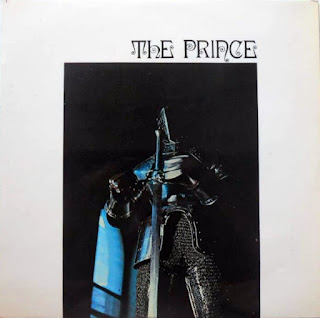 |
| Oliver O. Cook"The Prince" 1972 Italy ultra rare Prog Psych Polaris label |
 |
| Mario Molino "C 364 -Antico E Moderno"1975 Italy Experimental,Psych Funk,Electronic.Prog Fuzz |
 |
| The Trip "The Trip" 1970 UK / Italy Prog Rock |
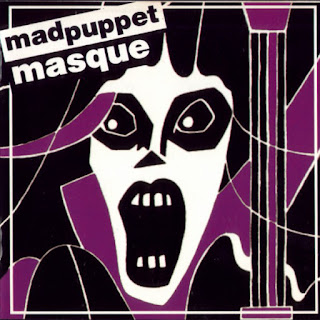 |
| Mad Puppet "Masque" 1982 Italy Prog Rock |
 |
| MonnaLisa "In Principio " 2017 Italy Prog Metal |
 |
| Gianni Mazza “Spazio” 1972 Italy Electronic Experimental Prog |
 |
| Atlantide “Francesco Ti Ricordi” 1976 very rare Private Italy Heavy Prog Hard Rock |
 |
| Saint Just "Saint Just" 1973 (100 Best Albums of Italian Progressive by Mox Cristadoro book) +"La Casa Del Lago" 1974 Italy Prog Folk Rock |
 |
| Saint Just "Saint Just" 1973 (100 Best Albums of Italian Progressive by Mox Cristadoro book) +"La Casa Del Lago" 1974 Italy Prog Folk Rock |
 |
| Mo.Do."La Scimmia Sulla Schiena del Re"1980 Italy Prog (Dalton-member) |
 |
| Nicosia & C. Industria Musicale “Una Favola Vera” 1973 Italy Prog Rock |
 |
| Futuro Antico “Futuro Antico” 1980 Cassette Italy Electronic,Experimental,Ambient,Prog,Raga,Ethnic |
 |
| Futuro Antico “Dai Primitivi All 'Elettronica"1990 Italy Electronic,Experimental,Ambient,Prog,Raga,Ethnic |
 |
| Futuro Antico “Isole Del Suono” 2016 Italy Experimental Electronic,Ambient unreleased 1980 recordings Live |
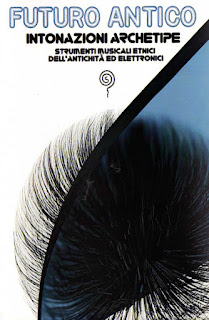 |
| Futuro Antico “Intonazioni Archetipe"2005 CD + “Les Balafons De Haute-Volta” Cassete + Futuro Antico “Afghanistan” Cassete Italy Experimental Ambient |
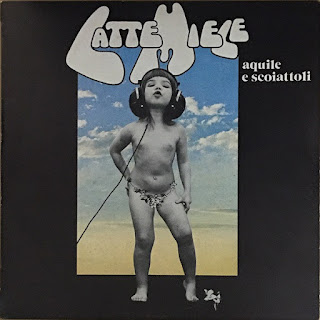 |
| Latte E Miele “Aquile E Scoiattoli” 1976 Italy Prog |
 |
| Premiata Forneria Marconi “Storia di un Minuto” 1972 debut album an Italian Prog masterpiece (100 Best Albums of Italian Progressive by Mox Cristadoro book) |
 |
| Ancient Sky “T.R.I.P.S” 2012 Italy Psych Space Rock 200 copies on black vinyl |
 |
| Eneide "Uomini Umili Popoli Liberi" 1990 Italy Private Melodic Prog Rock (Recordings from 1972, previously unissued.) |
 |
| Richard Last Group "Get Ready" 1972 mega rare Italian Prog |
 |
| Electric Frankenstein “What Me Worry?” 1975 Italy Prog |
 |
| Blue Beard “Blue Beard” 1971 UK / Italy Prog Psych,Blues Rock (Recorded and released only in Italy) |
 |
| Ape Skull “Fly Camel Fly” 2015 Italy Psych Hard Rock |
 |
| Monkey Diet "Inner Gobi" 2017 Italy Prog Rock,Math Rock,Psych Rock |
 |
| Osanna“Milano Calibro 9 -Preludio,Tema, Variazioni E Canzona” 1972 Italy Prog Rock soundrack (100 Best Albums of Italian Progressive by Mox Cristadoro book) |
 |
| Massimo Ruggeri “Controcorrente” 1979 Italy Private Prog Xian Pop Rock |
 |
|
|
 |
| I.P. Son Group "I.P. Son Group" 1975 Italy Avant Garde Jazz Fusion,Experimental |
 |
| Moby Dick "Moby Dick" 1972 Italy Hard Rock |
 |
| Tuna de Tierra “Tuna de Tierra” 2017 Naples Italy Stoner Psych |
 |
| Samadhi “Samadhi” 1974 Italian Prog (100 Best Albums of Italian Progressive by Mox Cristadoro book) |
 |
| New Trolls” Concerto Grosso N. 2″ 1976 Italy Prog Symphonic |
 |
| Juniors “The Juniors Story” 1971 very rare Italy Prog Pop Rock,Beat |
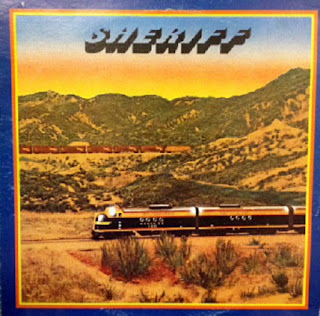 |
| Sheriff "Sheriff " 1979 Italy Prog Space Rock,Hard Rock (Franco Falsini,Sensations' Fix) |
 |
| Quasar L.S. “The Dead Dream"1977 Italy Prog Symphonic recorded in 1977, re-recorded in 1995 & released 2012 |
 |
| Ultima Spiaggia "Ultima Spiaggia" (Disco dell'angoscia) 1975 Italy Prog Rock |
 |
| Dalton "Riflessioni: Idea D'Infinito" 1973 (100 Best Albums of Italian Progressive by Mox Cristadoro book) + “Argitari”1975 Rock Progressivo Italiano |
 |
| Dalton "Riflessioni: Idea D'Infinito" 1973 (100 Best Albums of Italian Progressive by Mox Cristadoro book) + “Argitari”1975 Rock Progressivo Italiano |
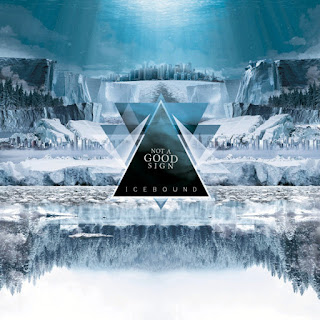 |
| Not a Good Sign “Icebound"2018 Italy Prog |
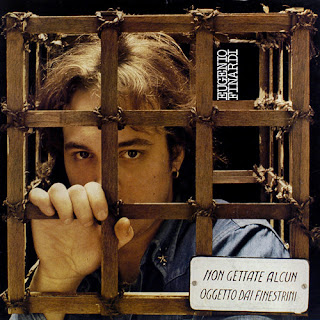 |
| Eugenio Finardi "Non Gettate Alcun Oggetto Dai Finestrini" 1975 Italy Prog,Pop Rock debut album |
 |
| Tito Schipa Jr. "Io Ed Io Solo" 1974 Italy Prog Pop Rock (feat Equipe 84,L'uovo Di Colombo,Samadhi,Reale Accademia Di Musica,Goblin,Libra,Logan Dwight - members) |
 |
|
|
 |
| Circle Of Fairies “As The Years Go By” 1995 Italy Neo Prog,Symphonic |
 |
| Witchwood "Before the Winter" 2020 Italy Prog Hard Rock, Retro Prog,double vinyl |
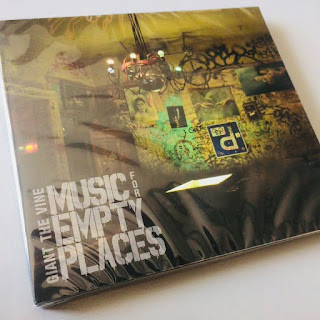 |
| Giant The Vine "Music For Empty Places" 2019 Italy Prog Rock |
 |
| Blind "Youmanity" 2020 Italy Prog Rock |
 |
| Cellar Noise "Nautilus” 2019 Italy Heavy Prog,Neo Prog,Symphonic Prog |
 |
| Redy Groovers "Other Noise" 2020 Italy Psych,Prog,Blues |
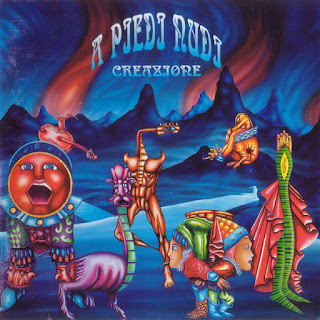 |
| A Piedi Nudi "A Piedi Nudi" 1994 + "Creazione" 1995 + "Eclissi" 1997 Italy Prog Rock |
 |
| A Piedi Nudi "A Piedi Nudi" 1994 + "Creazione" 1995 + "Eclissi" 1997 Italy Prog Rock |
 |
| A Piedi Nudi "A Piedi Nudi" 1994 + "Creazione" 1995 + "Eclissi" 1997 Italy Prog Rock |
 |
| Nicola Denti "Egosfera" 2020 Italy Prog Rock,Prog Metal |
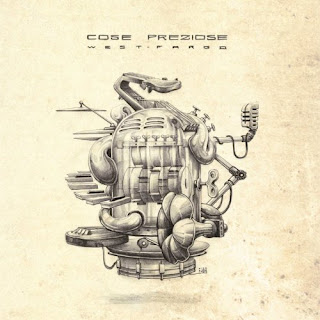 |
| West Fargo "Cose Preziose" 2018 Italy Prog Hard Rock |
 |
 |
 |
| Doraror "Evanescenze" 2005 Italy Prog Symphonic |


Rock Progressivo Italiano Artists Photos
 |
| Demetrio Stratos the golden throat |
 |
| I Pooh Rock Progressivo Italiano |
 |
| Le Orme Rock Italiano Progressivo |
 |
| Atlantide 1976. Rock Progressivo Italiano |
 |
| Il Balletto di Bronzo Rock Progressivo Italiano |
 |
| Il Balletto di Bronzo Rock Progressivo Italiano |
 |
| Gli Alluminogeni Rock Progressivo Italiano |
 |
| Semiramis Rock Progressivo Italiano |
 |
| Semiramis Rock Progressivo Italiano |
 |
| Semiramis Rock Progressivo Italiano |
 |
| Semiramis Rock Progressivo Italiano |
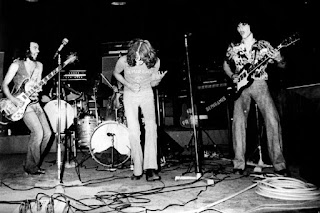 |
| Semiramis Rock Progressivo Italiano |
 |
| Semiramis Rock Progressivo Italiano |
 |
| Semiramis Rock Progressivo Italiano |
 |
| Semiramis Rock Progressivo Italiano |
 |
| Premiata Forneria Marconi Top of New Zealand House, Trafalgar Square, London |
 |
| Premiata Forneria Marconi |
 |
| Premiata Forneria Marconi |
 |
| Panna Fredda 1971 Rock Progressivo Italiano |
 |
| Il Balleto Di Bronzo Rock Progressivo Italiano |
 |
| Albero Motore 1974 Rock Progressivo Italiano |
 |
| Latte E Miele 1976 Rock Progressivo Italiano |
 |
| Corte Dei Miracoli 1976 Rock Progressivo Italiano |
 |
| Formula 3 1970 Rock Progressivo Italiano |
 |
| Cervello Rock Progressivo Italiano |
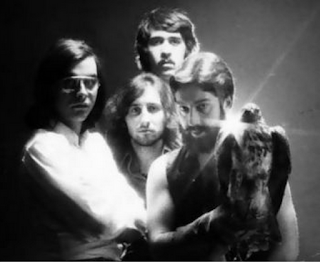 |
| Latte E Miele 1976 Rock Progressivo Italiano |
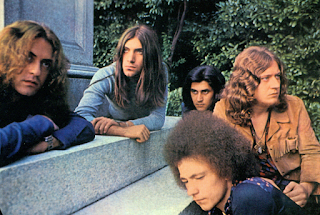 |
| Procession 1972 Rock Progressivo Italiano |
 |
| La Bottega dell Arte 1975 Rock Progressivo Italiano |
 |
| The Trip 1973 Rock Progressivo Italiano |
 |
| The Trip 1973 Rock Progressivo Italiano |
 |
| Jumbo 1972 Rock Progressivo Italiano |
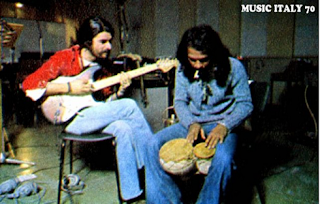 |
| La Bambibanda E Melodie 1974 Rock Progressivo Italano |
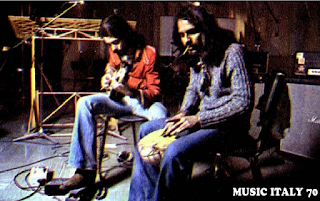 |
| La Bambibanda E Melodie 1974 Rock Progressivo Italano |
 |
| Delirium 1972 .Rock Progressivo Italano |
 |
| Delirium 1972 .Rock Progressivo Italano |
 |
| Delirium 1972 .Rock Progressivo Italano |
 |
| Analogy German Italy Prog Rock |
 |
| Antonius Rex 1980. Rock Progressivo Italiano |
 |
| I Giganti 1971 Rock Progressivo Italiano |
 |
| New Trolls Rock Progressivo Italano |
 |
| Flea 1972 Rock Italiano Progressivo |
 |
| Museo Rosenbach Rock Progressivo Italiano |
 |
| Osage Tribe 1972 Italy Heavy Prog |
 |
| Osage Tribe 1972 Italy Heavy Prog |
 |
| Osage Tribe 1972 Italy Heavy Prog |
 |
| Venegoni & Co. Italy Prog Jazz Rock Fusion |
 |
| Venegoni & Co. Italy Prog Jazz Rock Fusion |
 |
| Venegoni & Co. Italy Prog Jazz Rock Fusion |
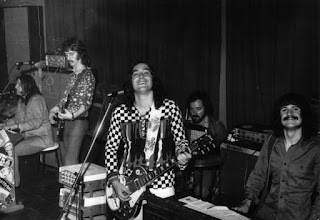 |
| Il Mucchio Italy Prog Psych |
 |
| Il Mucchio Italy Prog Psych |
 |
| Cervello Rock Progressivo Italiano |
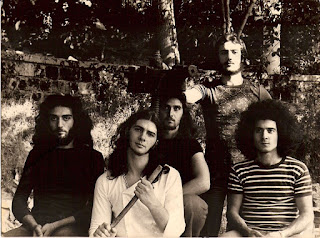 |
| Cervello Rock Progressivo Italiano |
 |
| Acqua Fragile Italy Prog Symphonic |
 |
| Circus 2000 e Italy Prog Psych |
 |
| Circus 2000 e Italy Prog Psych |
 |
| Circus 2000 e Italy Prog Psych |
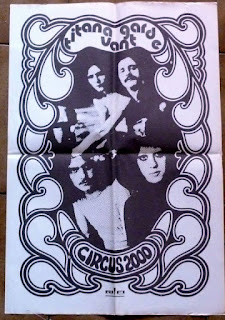 |
| Circus 2000 e Italy Prog Psych |
 |
| Circus 2000 e Italy Prog Psych |
 |
| Circus 2000 e Italy Prog Psych |
 |
| Circus 2000 e Italy Prog Psych |
 |
| Circus 2000 e Italy Prog Psych |
 |
| Circus 2000 e Italy Prog Psych |
 |
| Circus 2000 e Italy Prog Psych |
 |
| Circus 2000 Italy Prog Psych |
 |
| Circus 200 Italy Prog Psych |
 |
| Circus 2000 Italy Prog Psych |
 |
| Circus 2000 Italy Prog Psych |
 |
| Circus 2000 Italy Prog Psych |
 |
| Circus 2000 Italy Prog Psych |
 |
| Circus 2000 Italy Prog Psych |
 |
| Circus 2000 Italy Prog Psych |
 |
| Circus 2000 Italy Prog Psych |
 |
| Circus 2000 Italy Prog Psych |
 |
| Οι Ribelli με τον Demetrio Stratos στο κέντρο |
 |
| Il Volo Rock Progressivo Italiano |
 |
| Uno Rock Progressivo Italiano |
 |
| Uno Rock Progressivo Italiano |
 |
Sensations’ Fix |
 |
| Dedalus Italy Prog Jazz Rock Fusion |
 |
| Dedalus Italy Prog Jazz Rock Fusion |
 |
| Dedalus Italy Prog Jazz Rock Fusion |
 |
| Franco Battiato |
 |
| Franco Battiato |
 |
| Franco Battiato |
 |
| Franco Battiato |
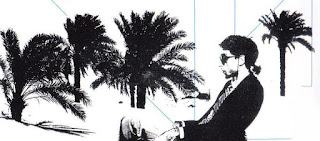 |
| Franco Battiato |
 |
| Franco Battiato |
 |
| Franco Battiato |
 |
| Banco del Mutuo Soccorso |
 |
| Banco del Mutuo Soccorso |
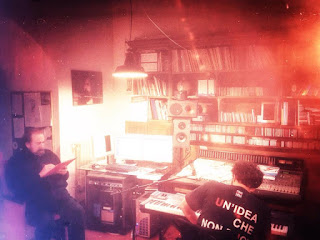 |
| Banco del Mutuo Soccorso |
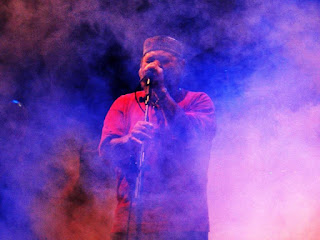 |
| Banco del Mutuo Soccorso |
 |
| Banco del Mutuo Soccorso |
 |
| Banco del Mutuo Soccorso |
 |
| Banco del Mutuo Soccorso |
 |
| Banco del Mutuo Soccorso |
 |
| Banco del Mutuo Soccorso |
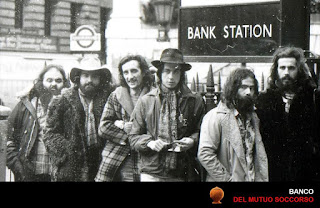 |
| Banco del Mutuo Soccorso |
 |
| Banco del Mutuo Soccorso |
 |
| Banco del Mutuo Soccorso |
 |
| Banco del Mutuo Soccorso |
 |
| Banco del Mutuo Soccorso |
 |
| Banco del Mutuo Soccorso |
 |
| Banco del Mutuo Soccorso |
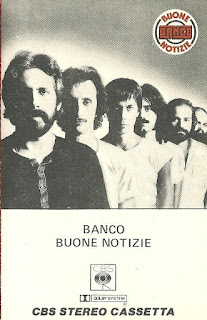 |
| Banco del Mutuo Soccorso |
 |
| Banco del Mutuo Soccorso |
 |
| Jumbo Rock Progressivo Italiano |
 |
| Goblin |
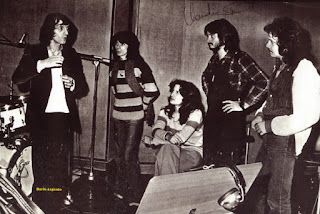 |
| Goblin |
 |
| Goblin |
 |
| Il Rovescio Della Medaglia |
 |
| Murple Rock Progressivo Italiano |
 |
| Murple Rock Progressivo Italiano |
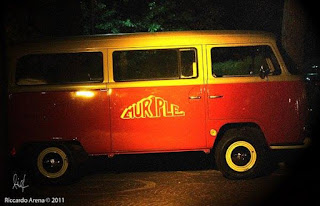 |
| Murple Rock Progressivo Italiano |
 | ||
|
 | ||
|
 |
| Murple Rock Progressivo Italiano |
 |
| Murple Rock Progressivo Italiano |
 |
| Murple Rock Progressivo Italiano |
 |
| Murple Rock Progressivo Italiano |
 |
| Murple Rock Progressivo Italiano |
 |
| Murple Rock Progressivo Italiano |
 |
| Murple Rock Progressivo Italiano |
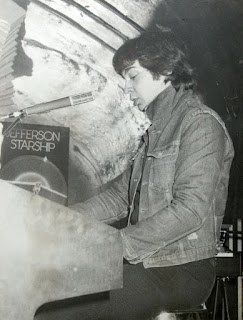 |
| Murple Rock Progressivo Italiano |
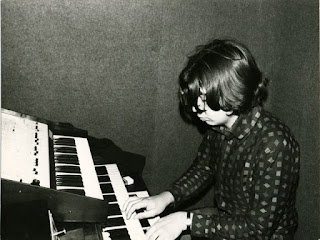 |
| Murple Rock Progressivo Italiano |
 |
| Murple Rock Progressivo Italiano |
 |
| Nuova Idea |
 |
| These 4 Polaroid photos of the procession, at parioli Roma and with our ford transit in Turin, witness an era, which is possible to replay on the CD 9 January 1972 |
 |
| Piero e i Cottonfields Italy Prog Pop Rock (Magority One) |
 |
| I Cocai Italy Prog Symphonic |
 |
| I Cocai Italy Prog Symphonic |
 |
| Nova Italy Prog Jazz Fusion |
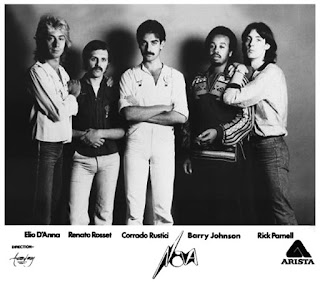 |
| Nova Italy Prog Jazz Fusion |
 |
| Quicksand Italy Prog Rock |
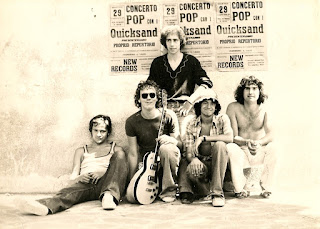 |
| Quicksand Italy Prog Rock |
 |
| Quicksand Italy Prog Rock |
 |
| Arturo Stalteri by Pierrot Lunaire |
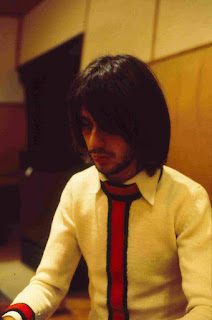 |
| Arturo Stalteri by Pierrot Lunaire |
 |
| Arturo Stalteri by Pierrot Lunaire |
 |
| Pierrot Lunaire |
 |
| Pierrot Lunaire |
 |
| Pierrot Lunaire |
 |
| Pierrot Lunaire |
 |
| Pierrot Lunaire |
 |
| Pierrot Lunaire |



.jpg)







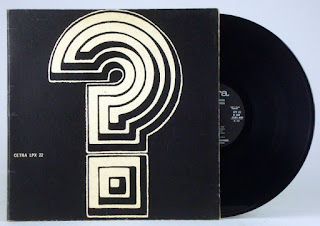











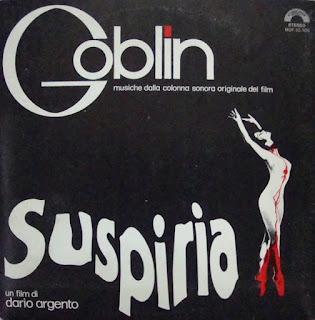


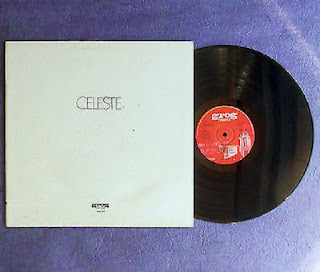







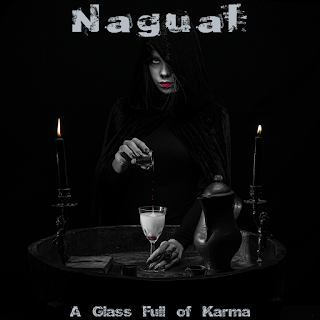



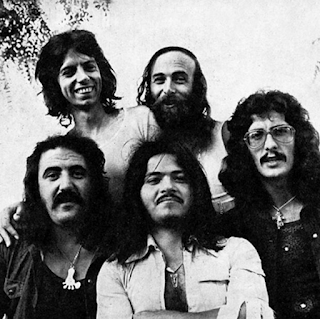
















Comments
Post a Comment